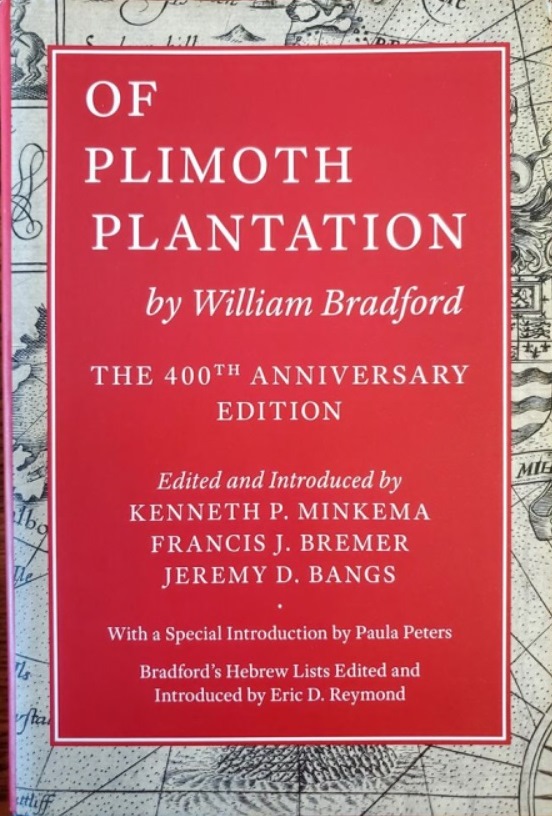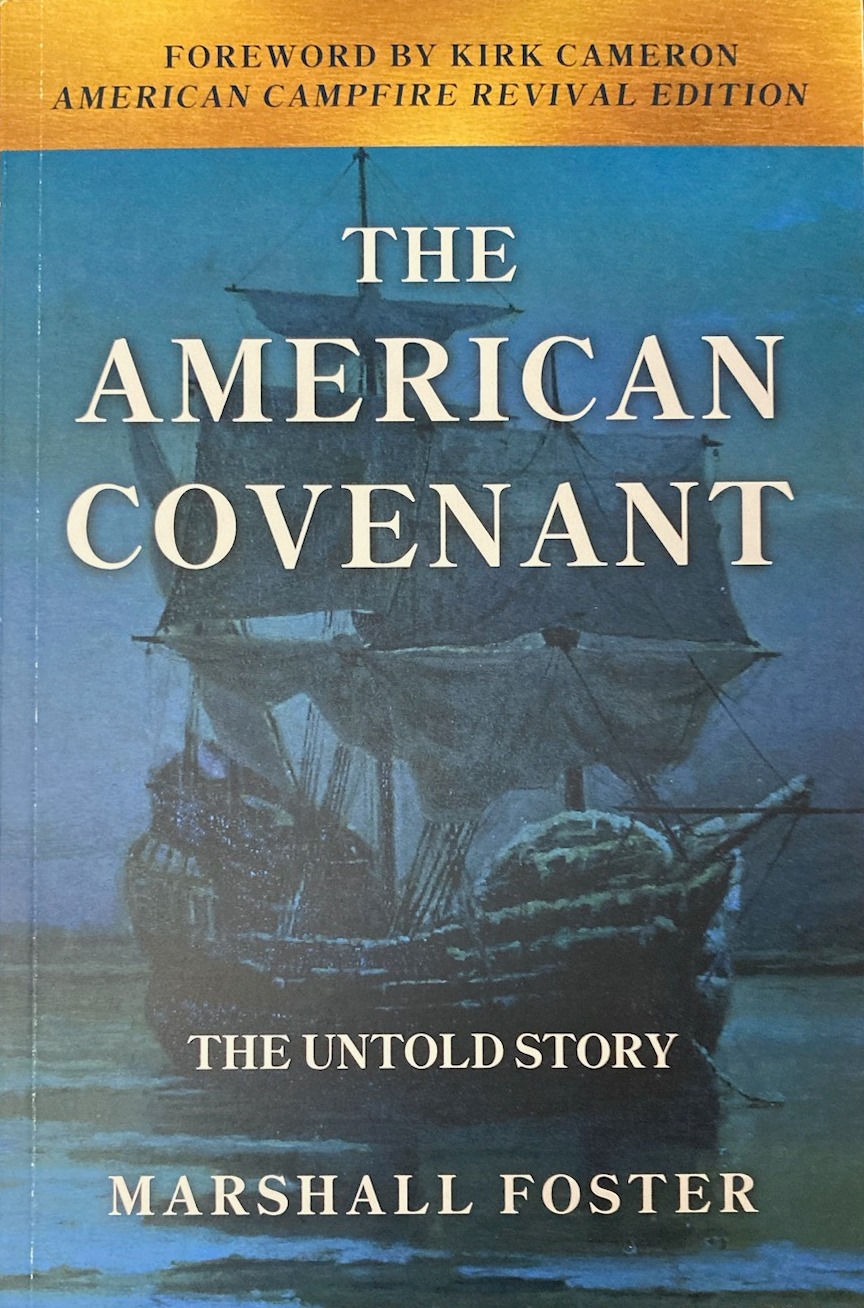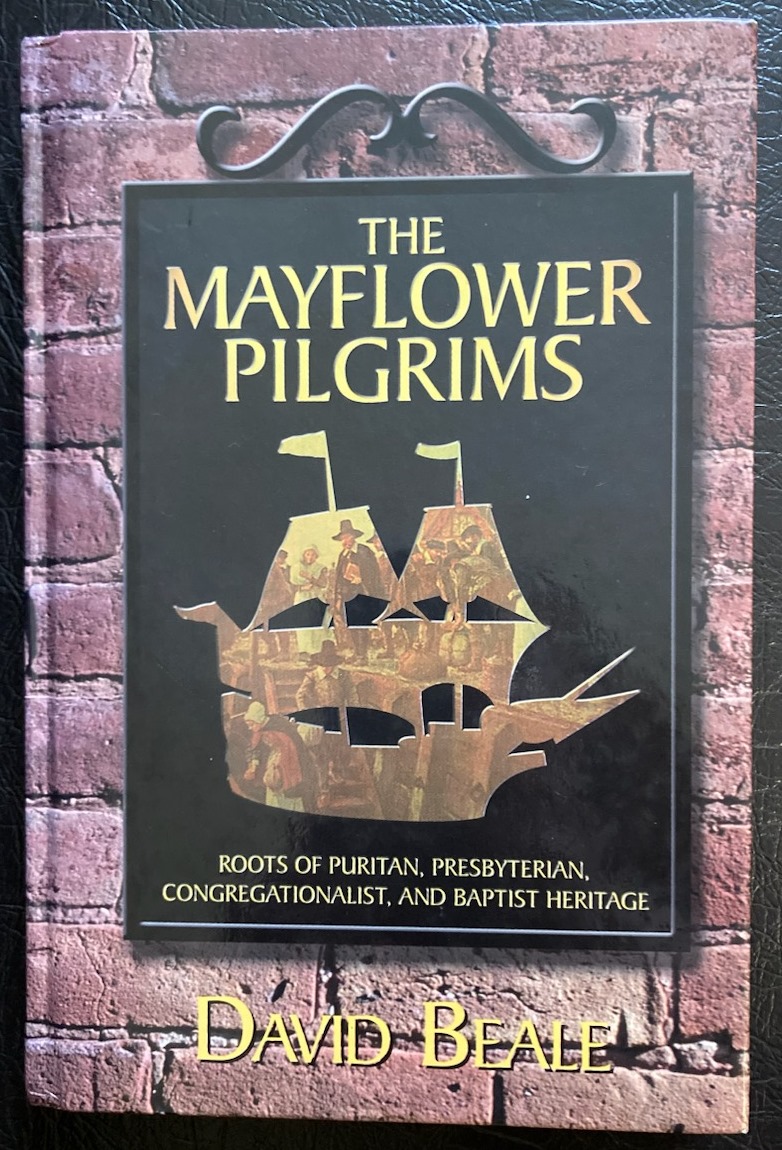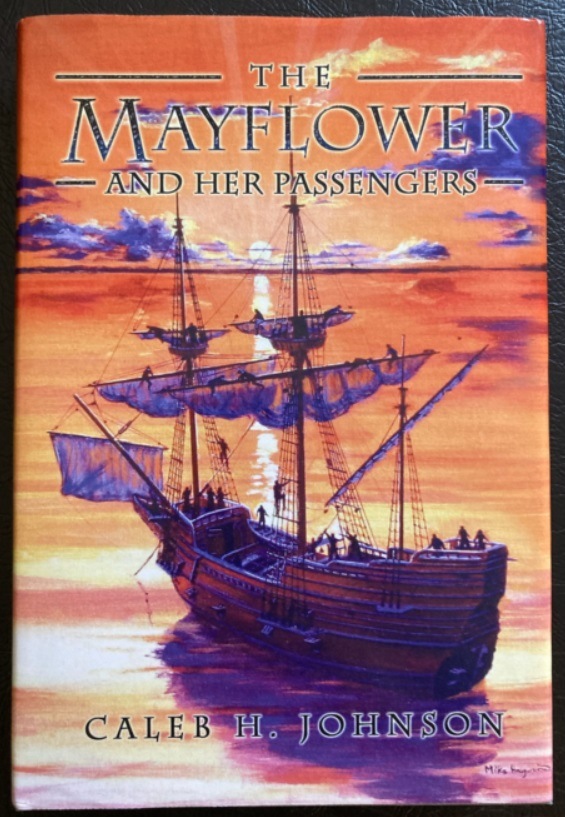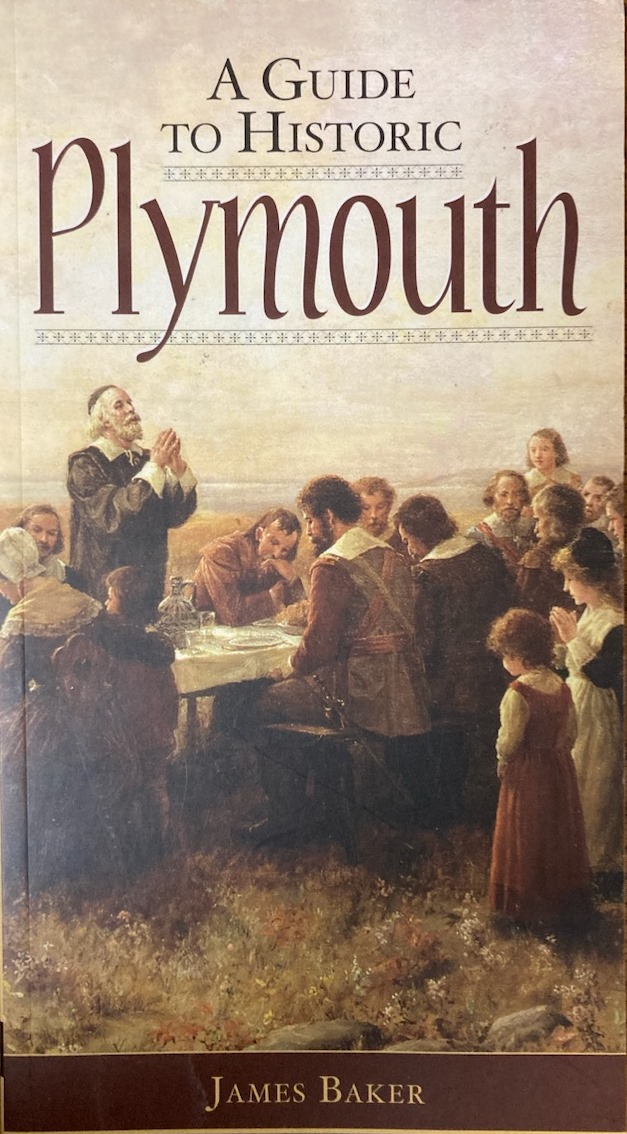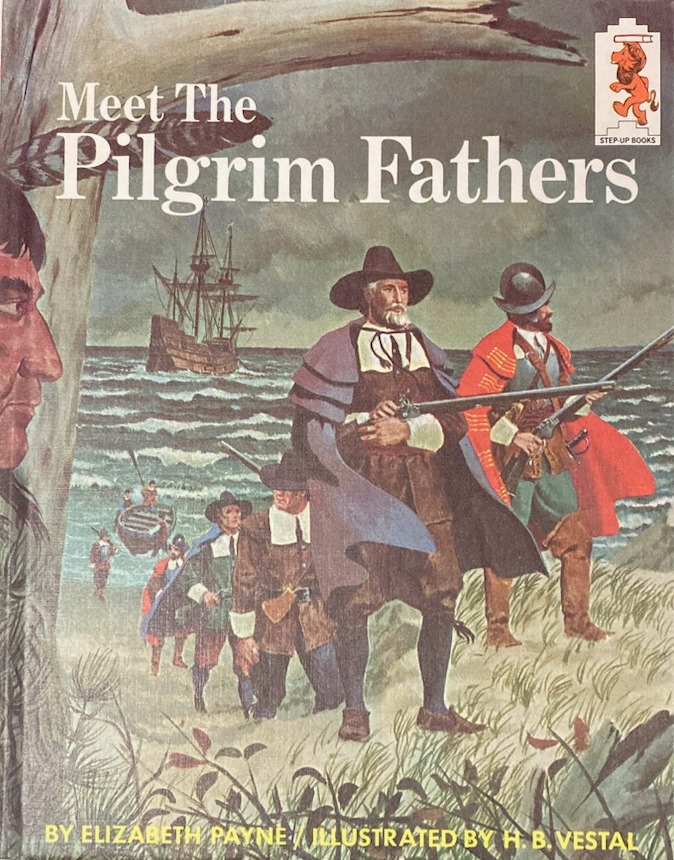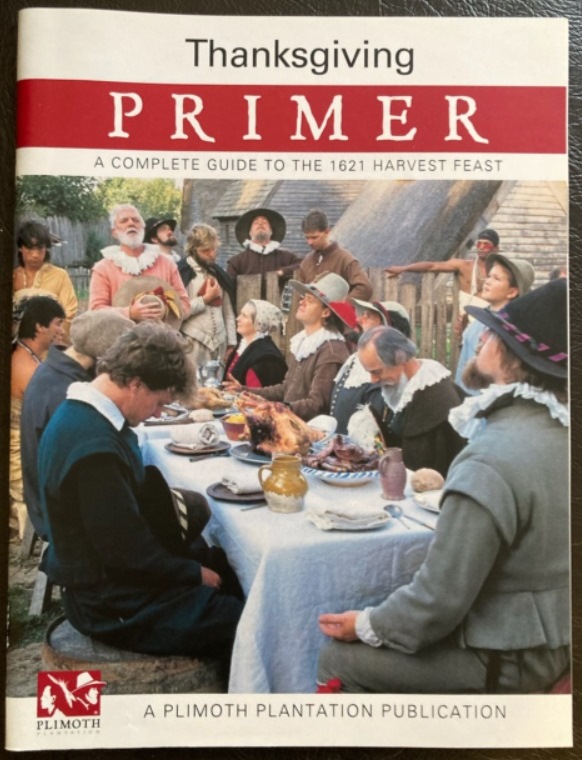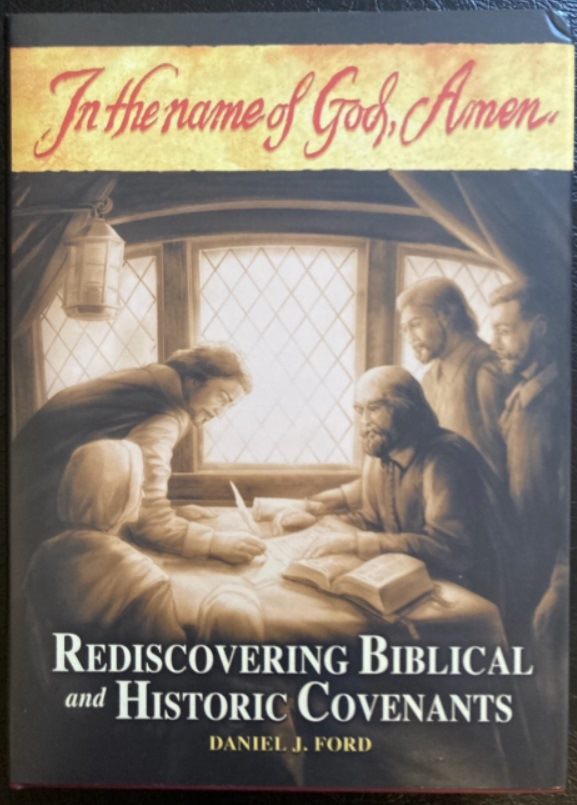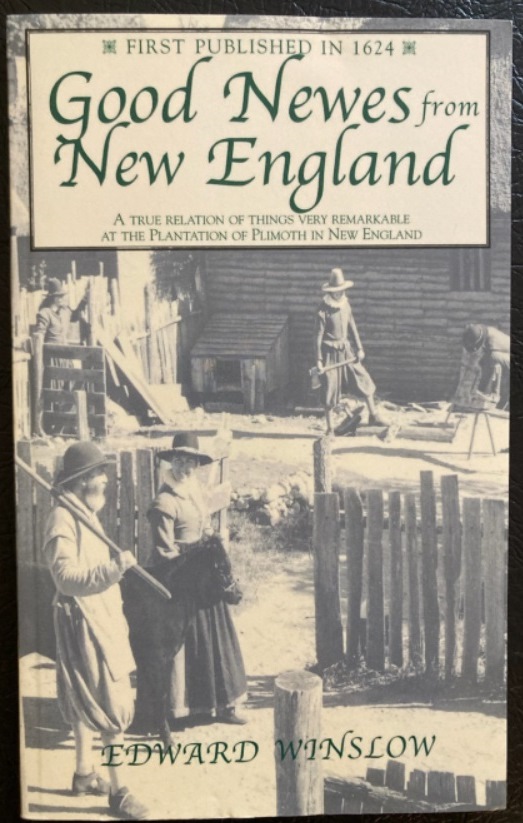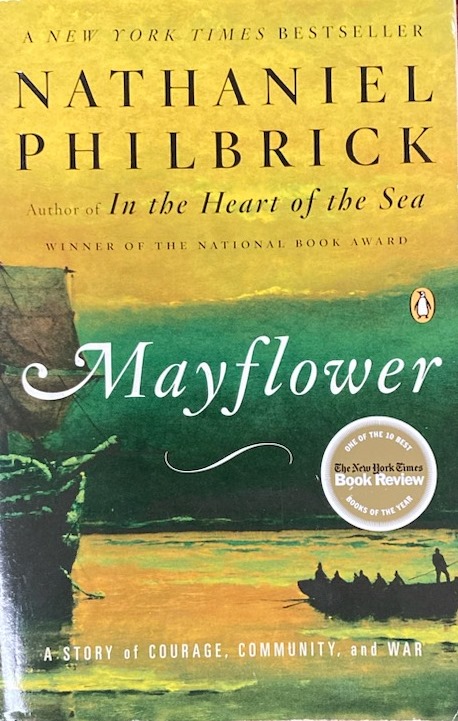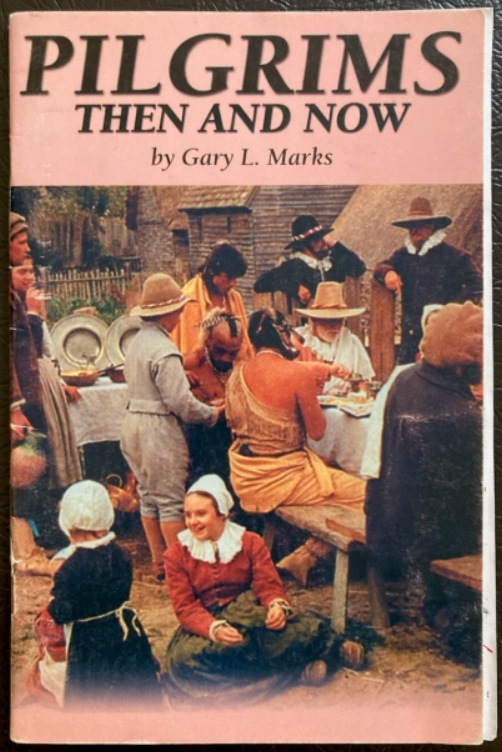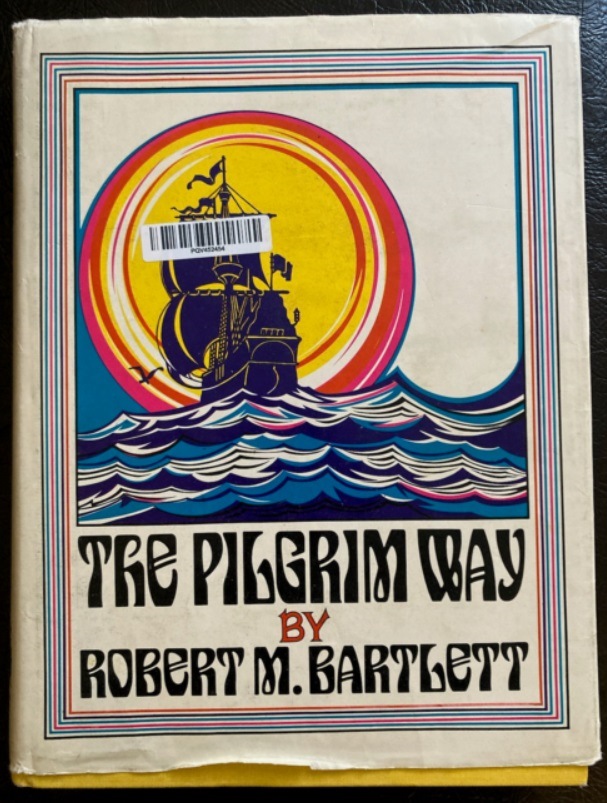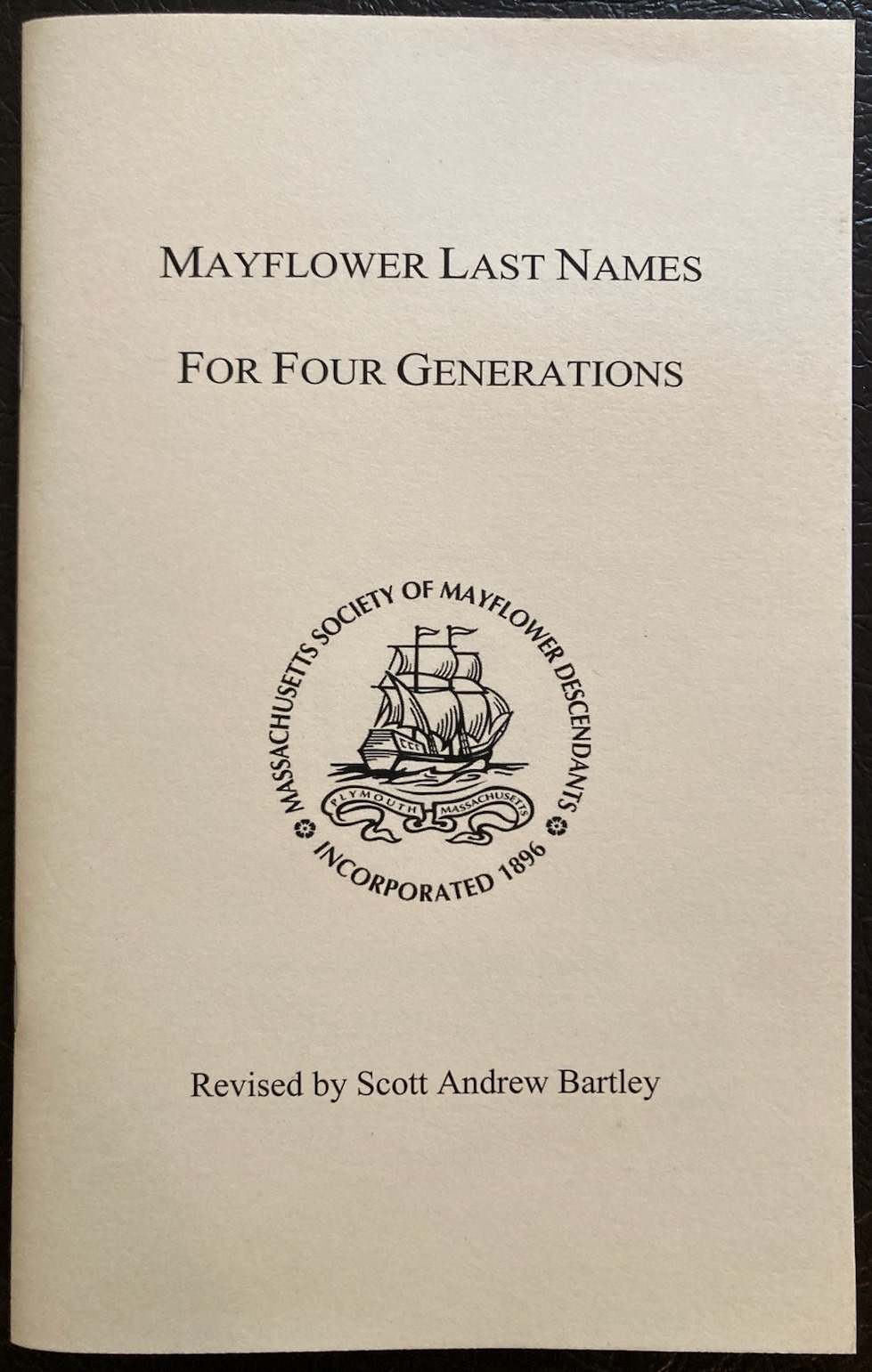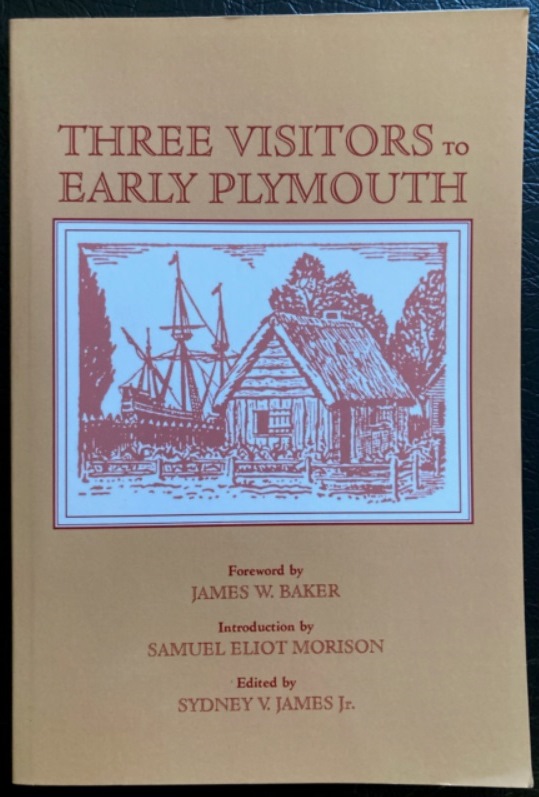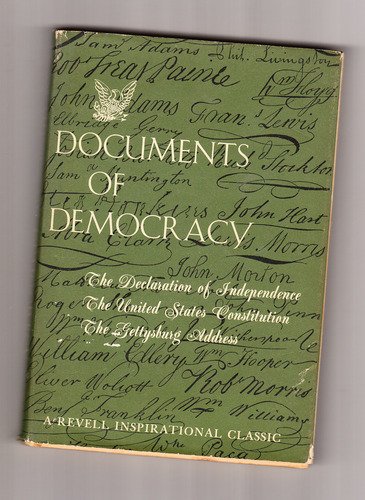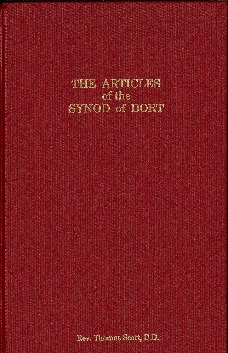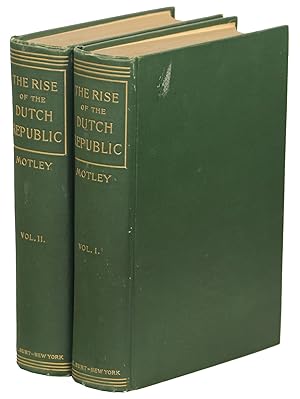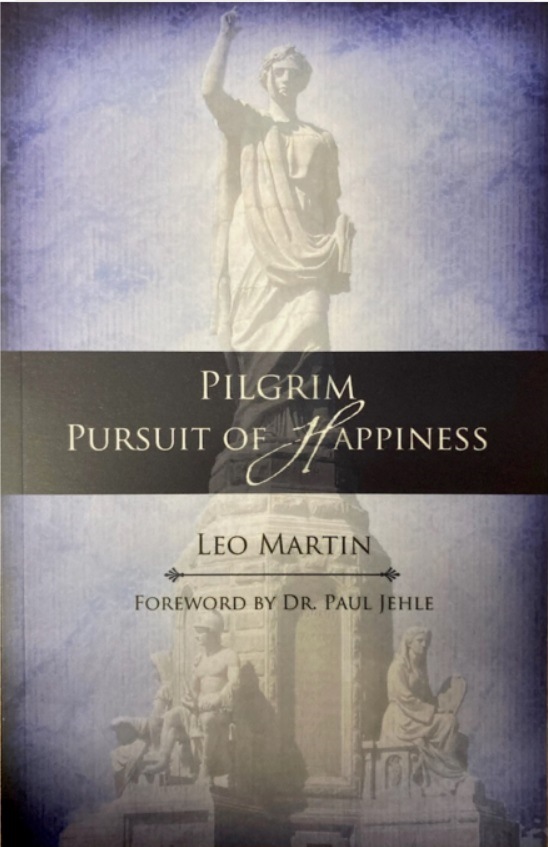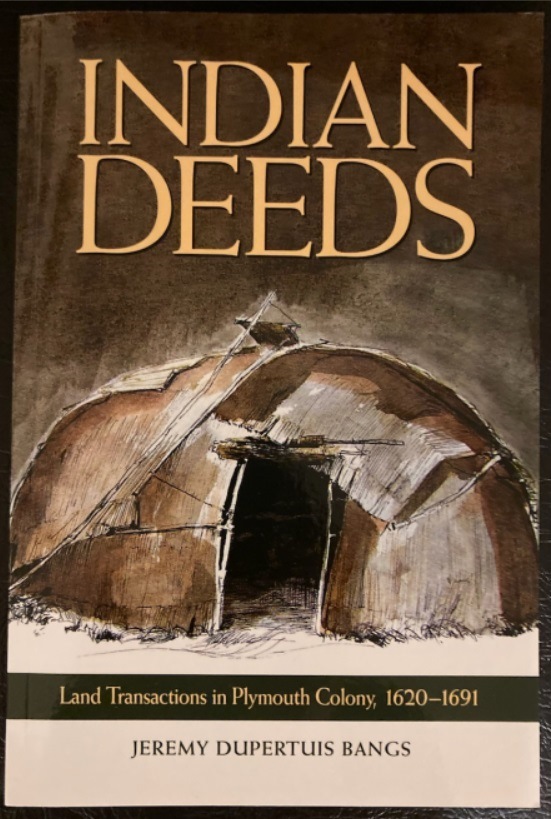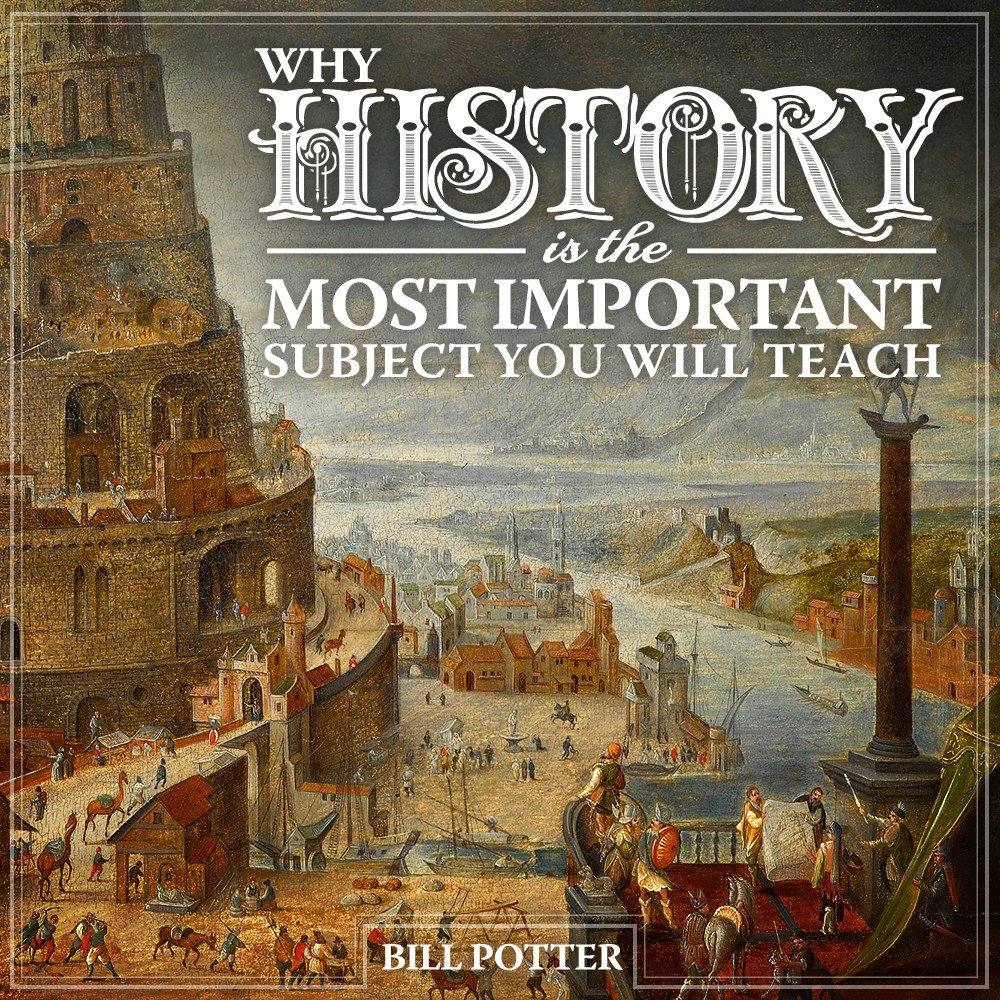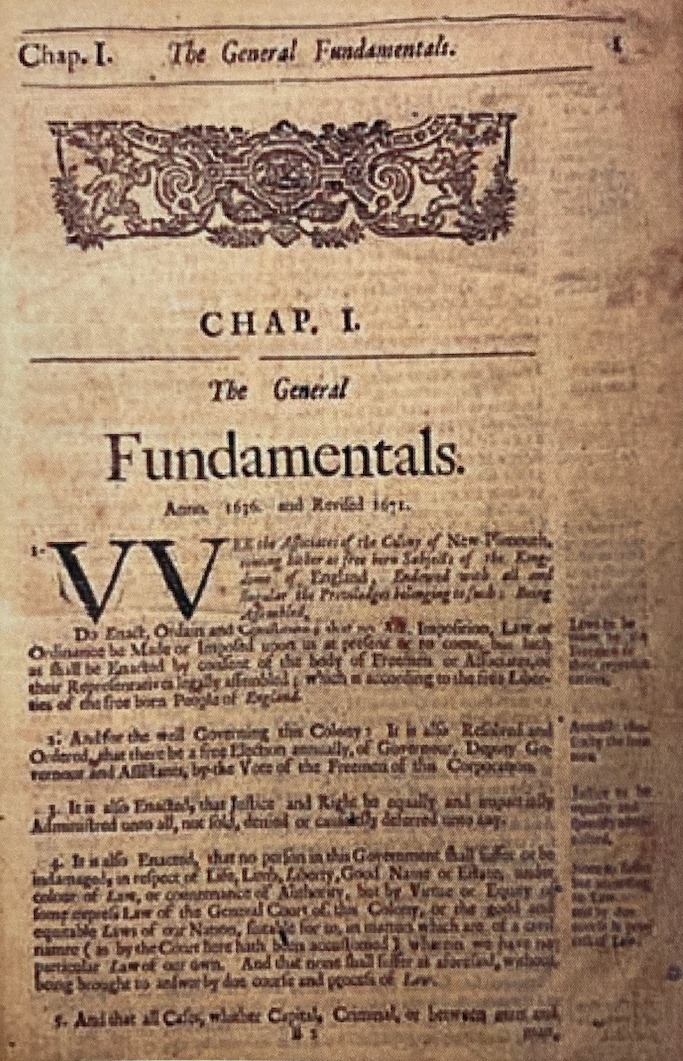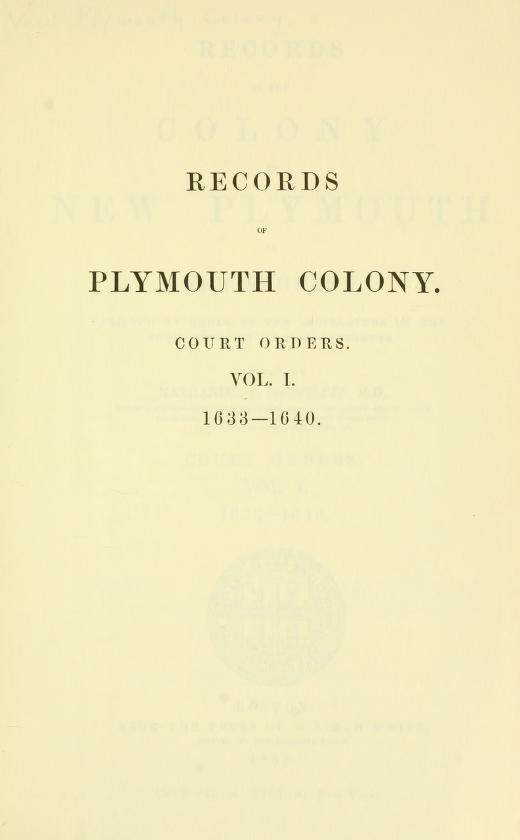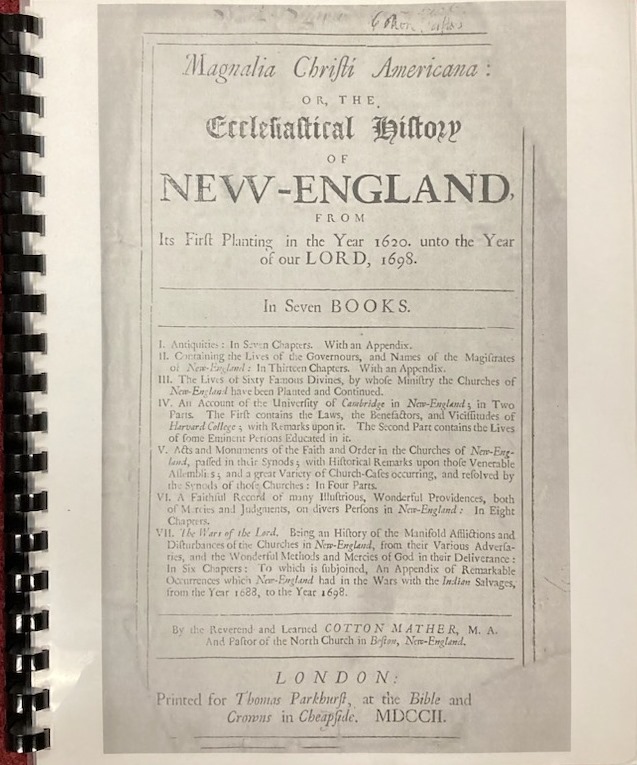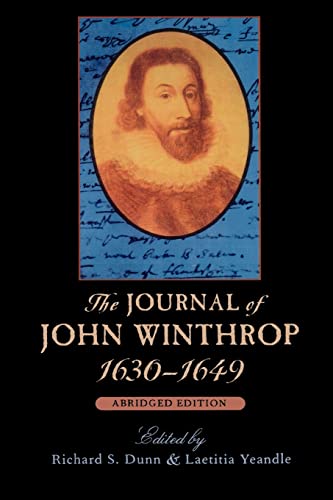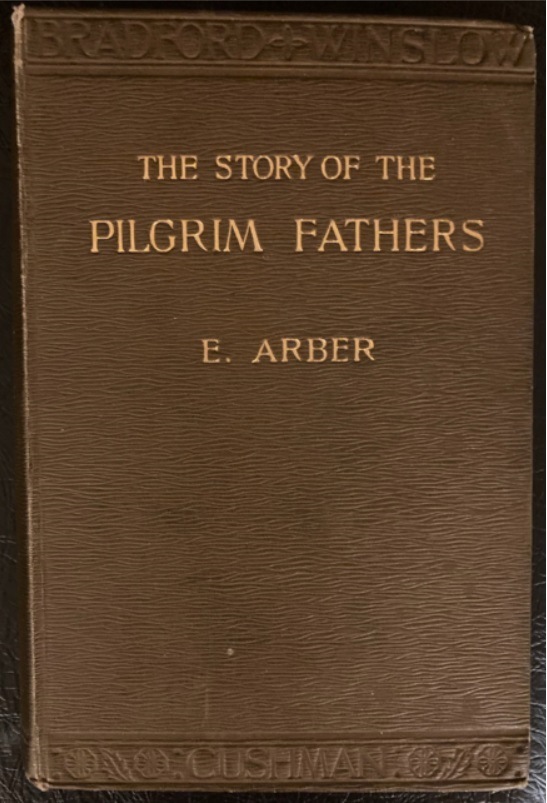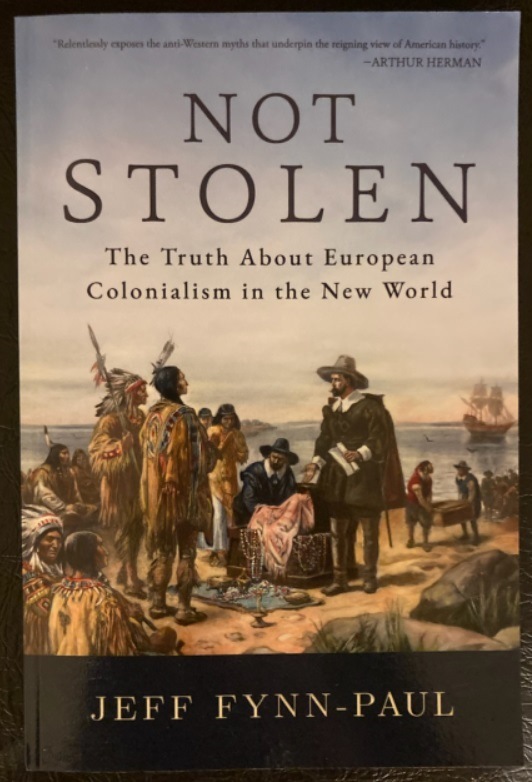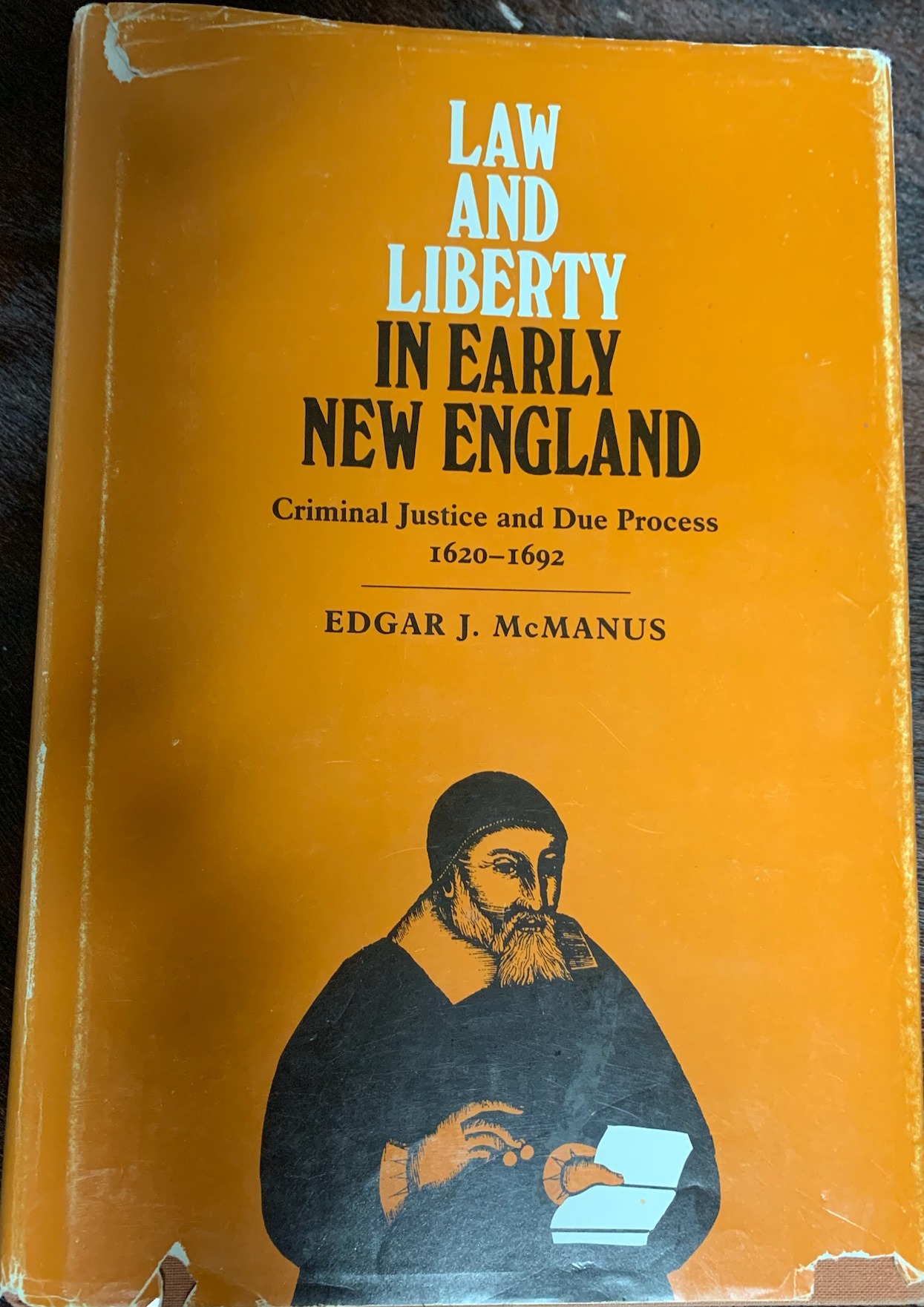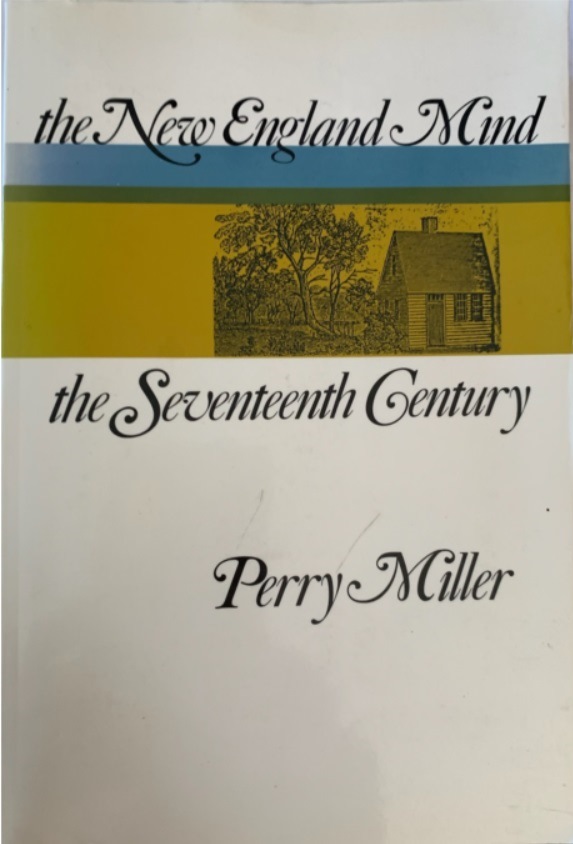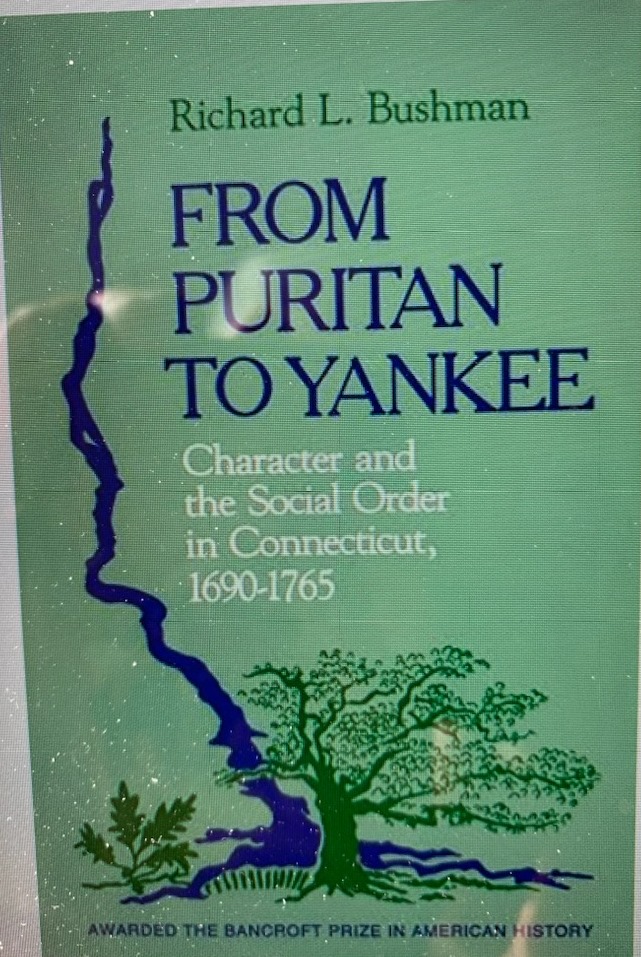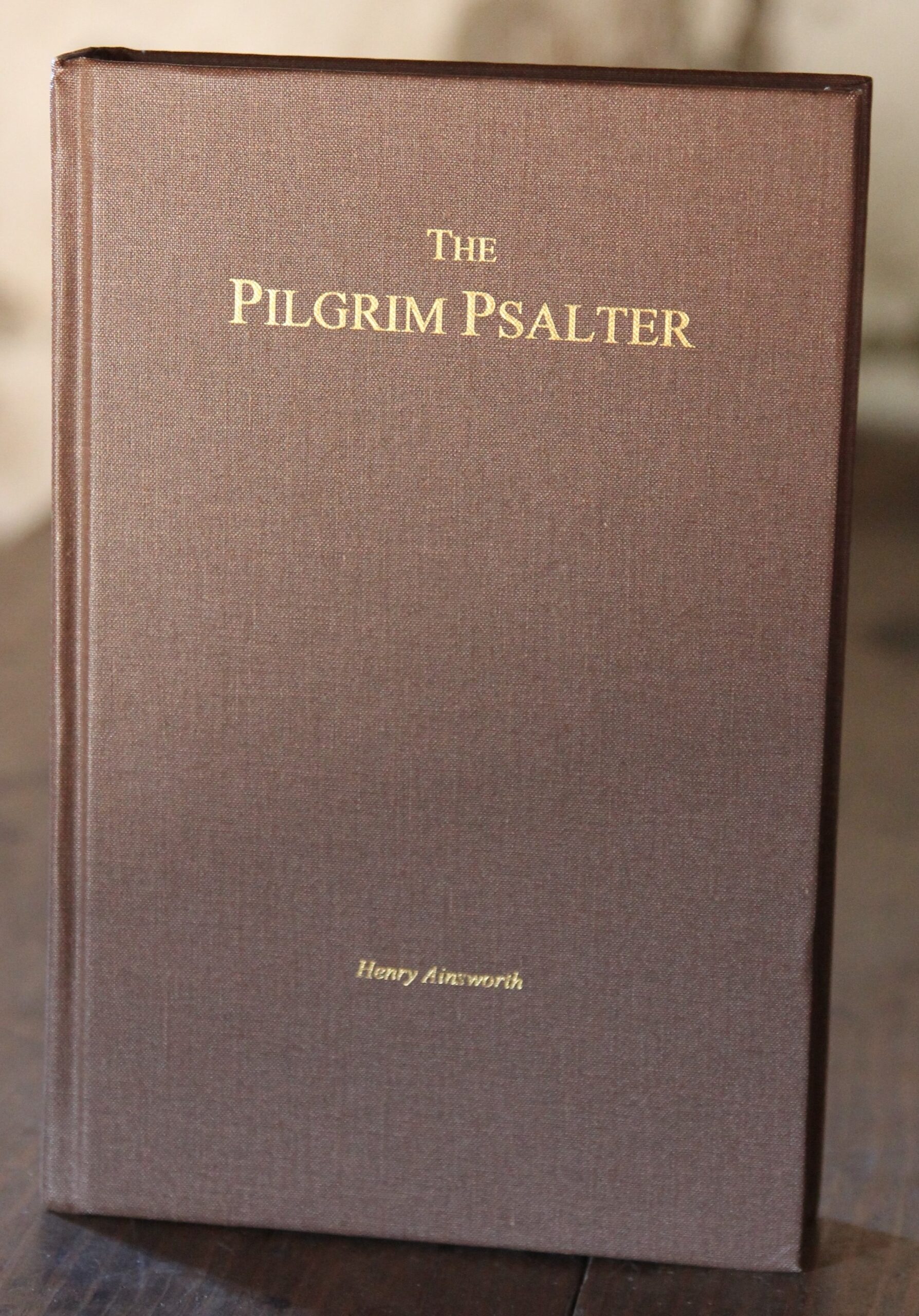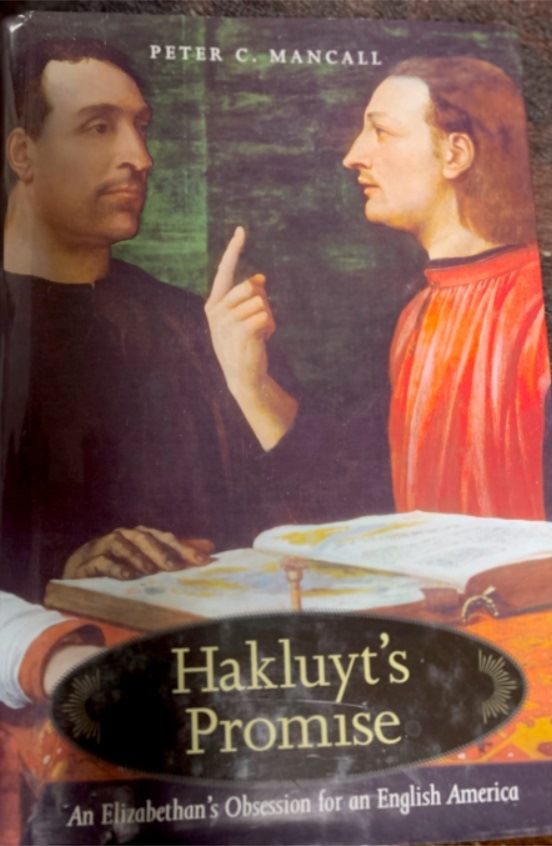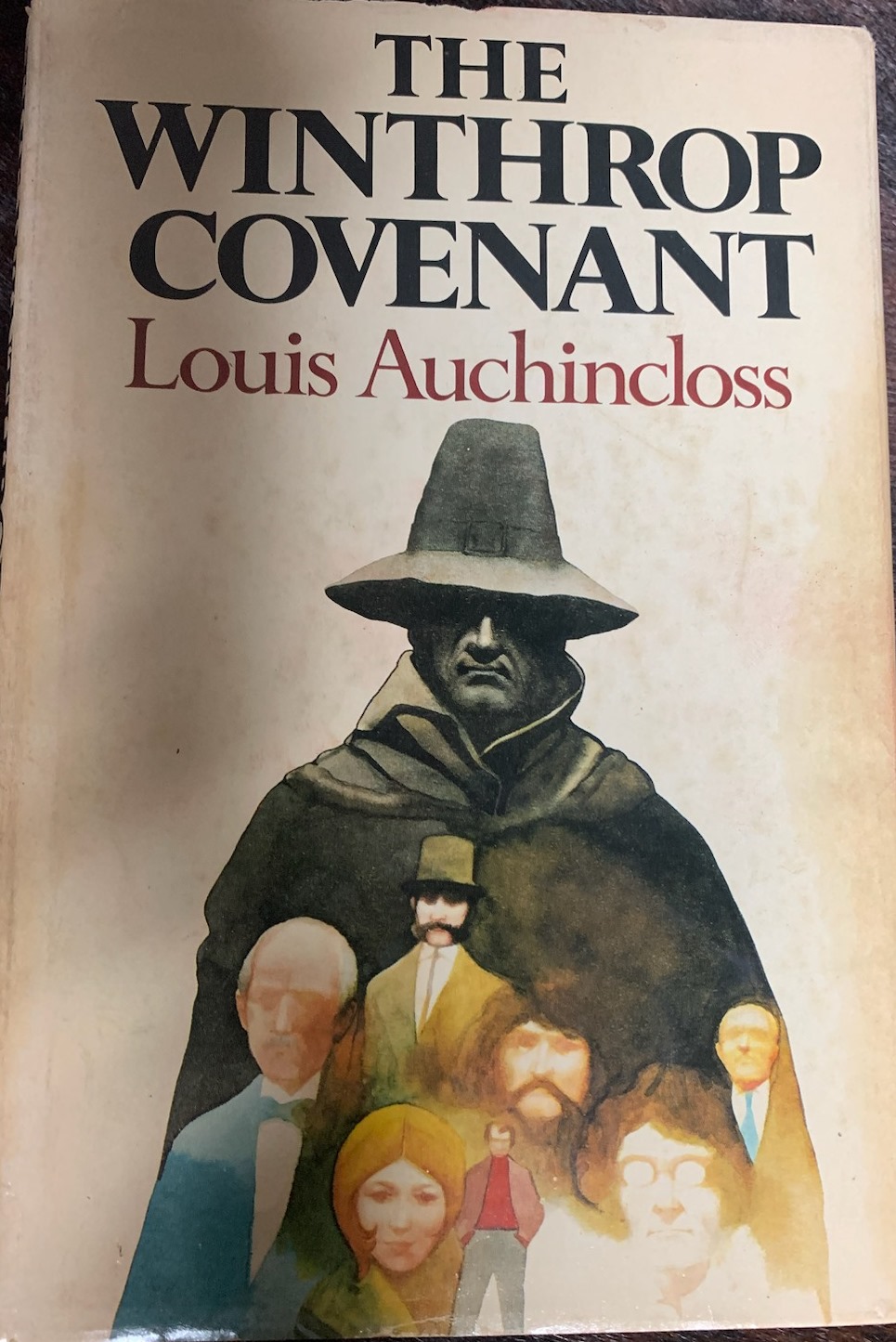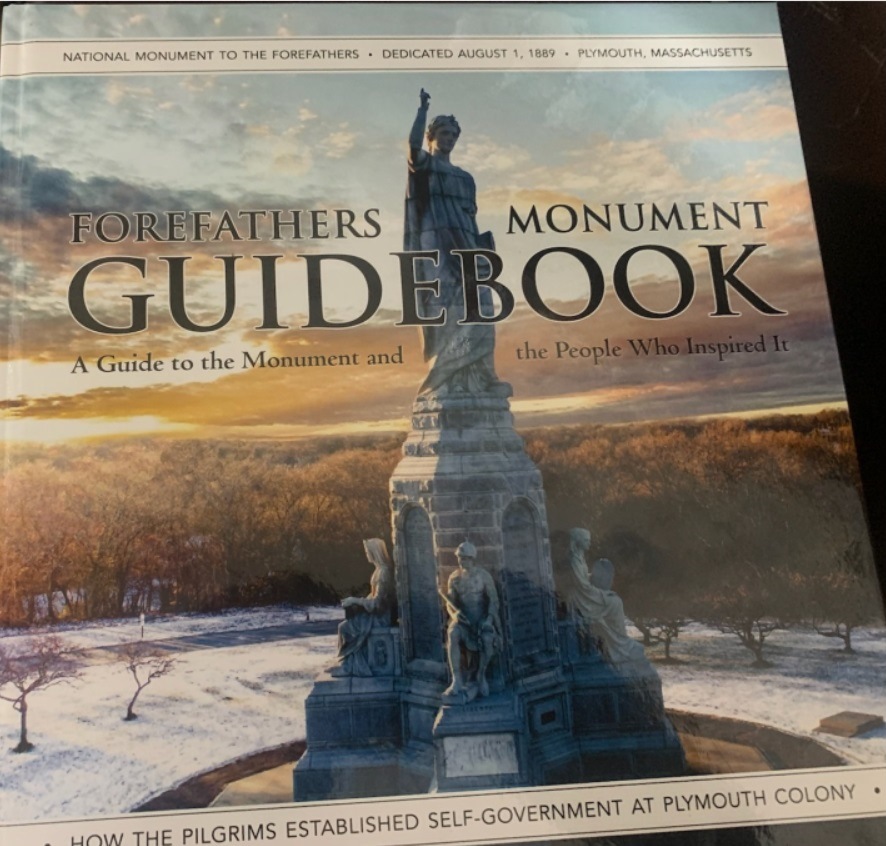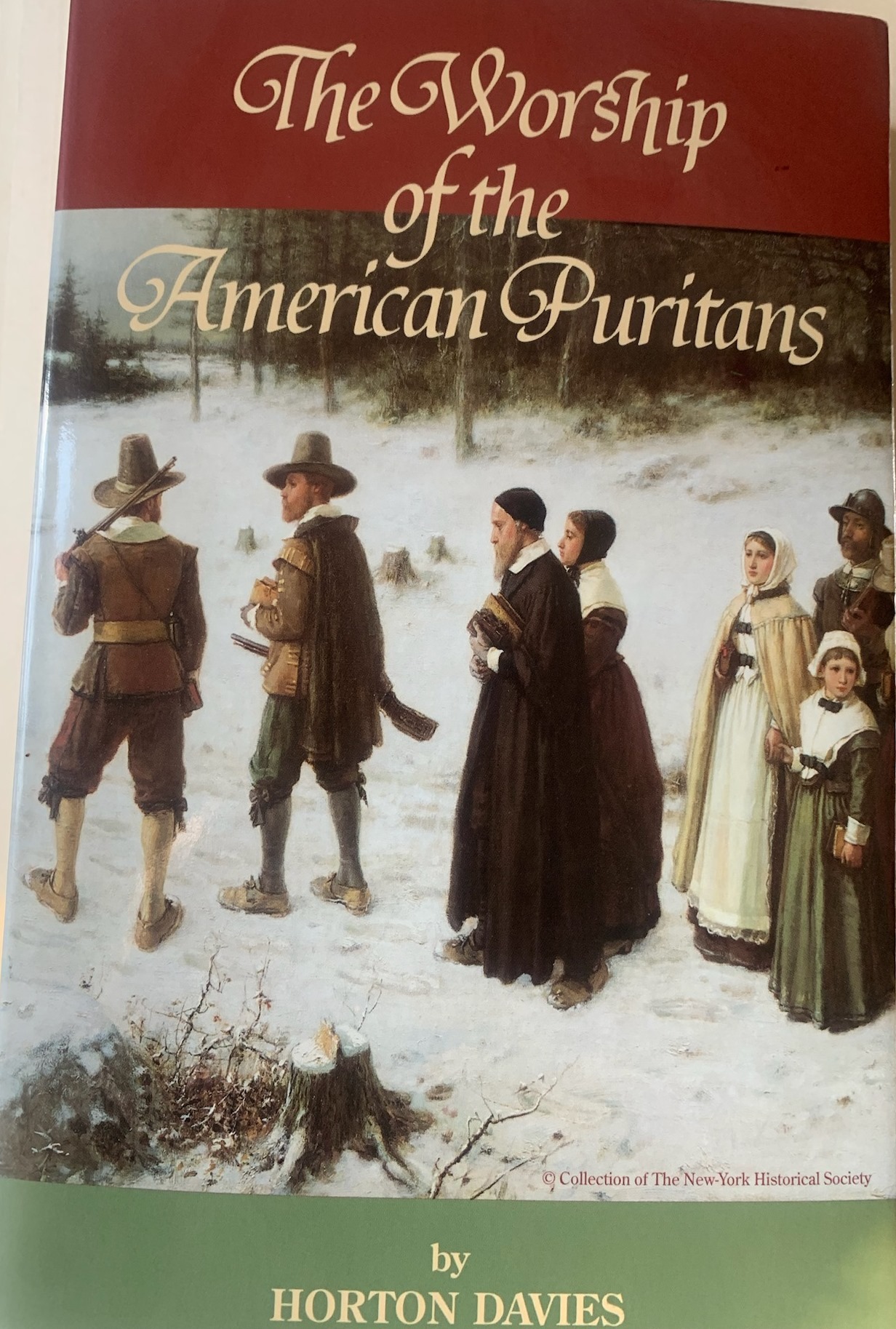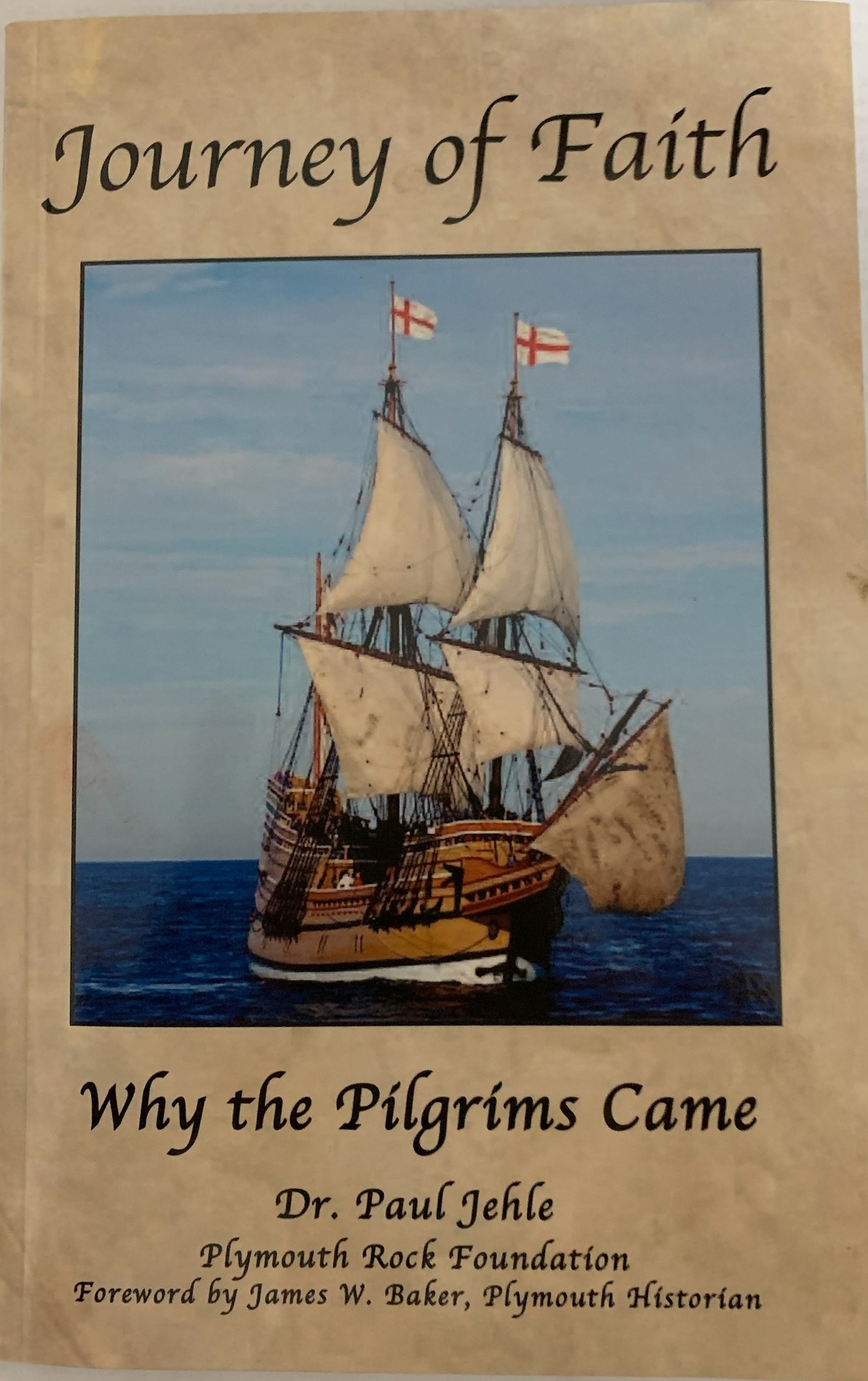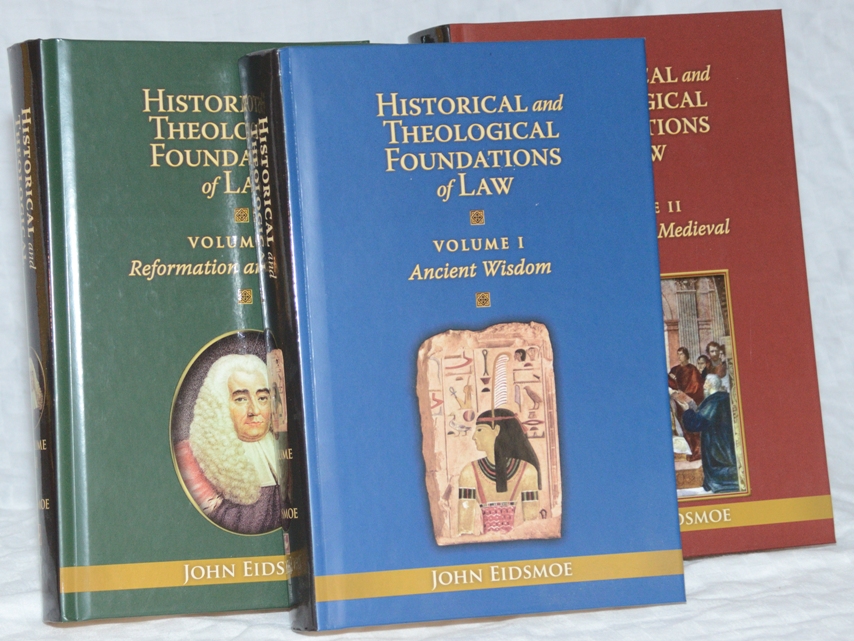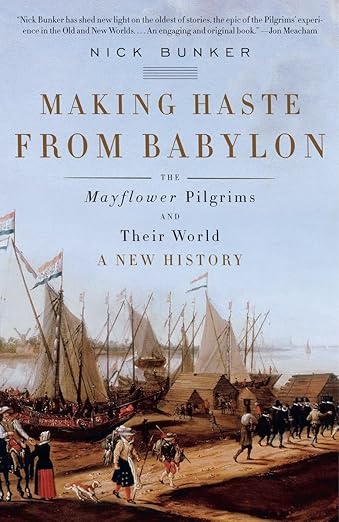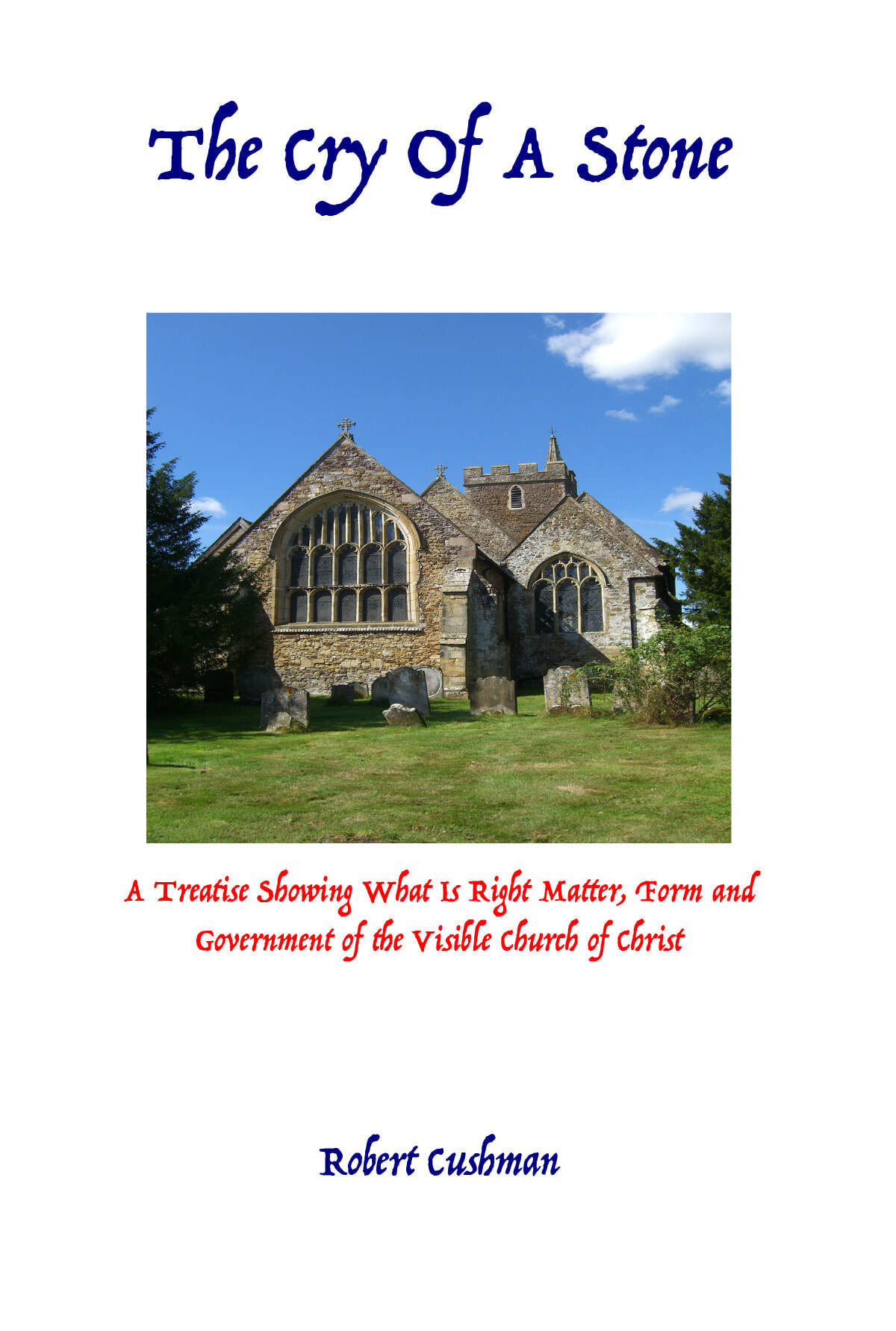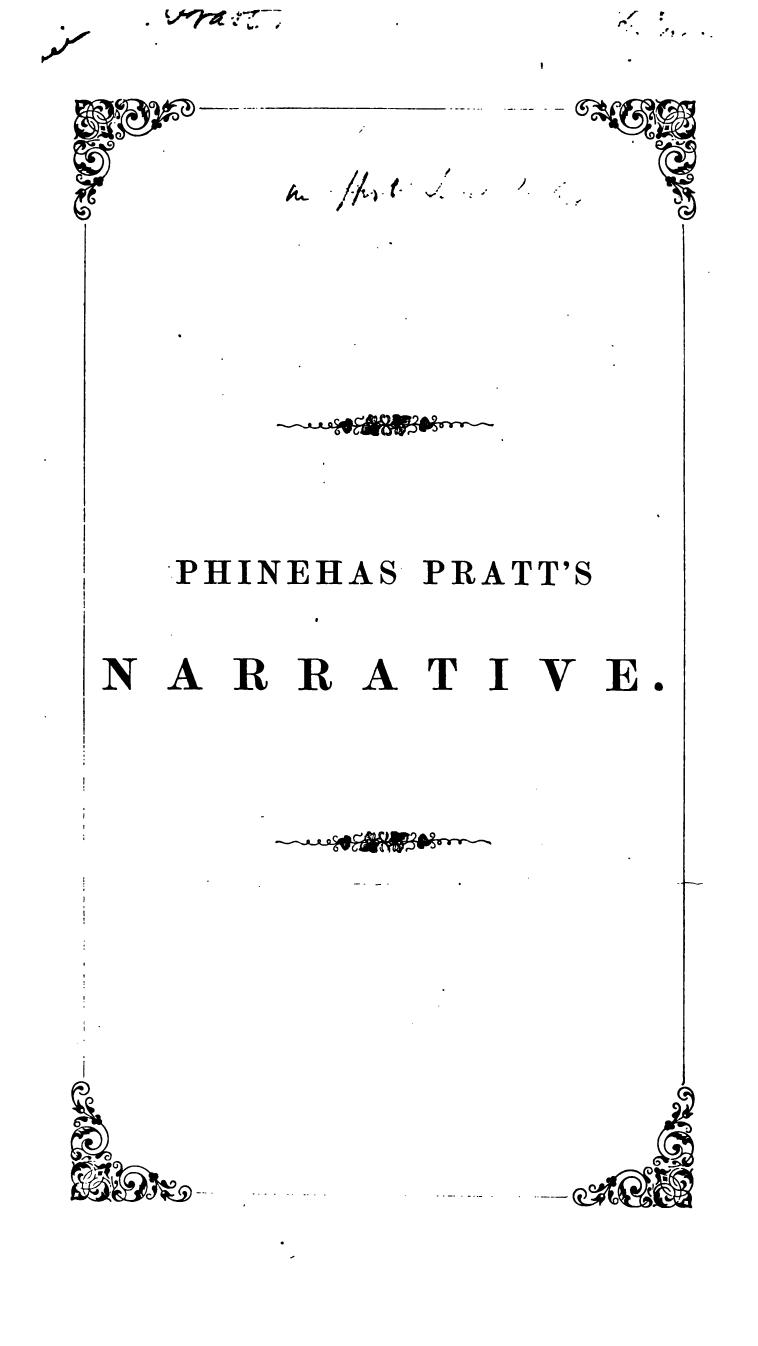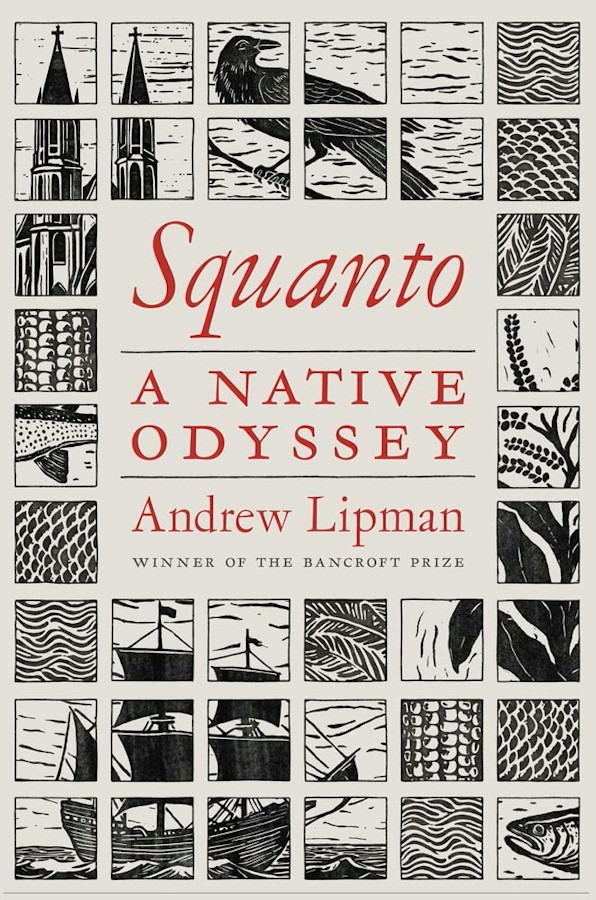Of Plimoth Plantation:
The 400th Anniversary Edition
By William Bradford; Edited by Francis Bremer, Jeremy Bangs
Publisher: New England Historic Genealogical Society, January 2020
ISBN: 10: 0997519185 /
ISBN: 13: 9780997519181
Description: This is the journal of the governor of the colony, William Bradford, that covers key events during the thirty years of Bradford’s leadership. It is honest, warm, humble, and contains a link to the essential points of history.
Reviewer: Gary Huffman
The Treacherous World
of the 16th Century
By William J. Federer
Publisher: AmericaSearch, 2018
ISBN: 13: 978-0-9896491-4-8
Description: This description by William Federer is easy and exciting reading. It describes the dangerous world of the 16th century. It is essential reading to help us understand the courage of the Pilgrims who traversed the north Atlantic and the cultural landscape of the 16th- and 17th-century world.
Reviewer: Gary Huffman
The American Covenant
By Marshall Foster
Publisher: Nordskog, 2021
ISBN: 978-0-9903774-0-5
Description: Marshall Foster writes with vigor to describe the value of the American covenant. He shows how noble leaders have been our intercessors to achieve for us a covenant relationship among ourselves and within our political, economic, and religious spheres.
Reviewer: Gary Huffman
The Mayflower Pilgrims
By David Beale
Publisher: Ambassador-Emerald International, 2002
ISBN: 1-889893-51-X
Description: David Beale writes in a crisp, clear style so that we may know the men we now call Pilgrims. He shows that they, though imperfect men, had noble ideals and intentionally set out to make a better future for us.
Reviewer: Gary Huffman
The Mayflower
and Her Passengers
By Caleb H. Johnson
Publisher: Xlibris Corporation, 2006
ISBN: 978-1599263991
Description: Caleb Johnson does careful research, and his writing is clear. This book contains short biographies of the Mayflower passengers and what is known about each of their situations. (Caleb Johnson adds some detail about what various men read if that is known. This is helpful.)
Reviewer: Gary Huffman
A Guide to Historic Plymouth
By James Baker
Publisher: The History Press, 2008
ISBN: 978-1-59629-228-4
Description: A nice, tidy, and handy guide to important places in Plymouth. Comments throughout are concise, clear, helpful, and well-placed.
Reviewer: Gary Huffman
Meet the Pilgrim Fathers
By Elizabeth Payne
Publisher: Random House, 1966
ISBN: (LOC 66-10428)
Description: Elizabeth Payne writes an account of the Pilgrims’ goals and migration to Plymouth. She writes to a fourth-grade target audience. The narrative moves from the church in Scrooby Manor to the refuge in Leiden, and finally to their new home in Plymouth. She honors the memory of Brewster, Bradford, Carver, Standish, Squanto, and Massasoit. It is a needed book in young lives.
Reviewer: Gary Huffman
Thanksgiving Primer
By Carolyn Freeman Travers
Publisher: Plimoth Plantation Publication, 1991
ISBN: n/a
Description: This work from Plimoth Plantation is helpful in teaching young families to plan Thanksgiving celebrations that accurately reflect the gratitude and the courage of our Pilgrim fathers. It contains authentic recipes and good suggestions to help families be thankful for their heritage.
Reviewer: Gary Huffman
The Geneva Bible
Publisher: Tolle Lege Press, 1599
ISBN: 0-9754846-1-3
Description: This is the Bible that was carried by the covenanted band of Pilgrims. It was the Bible that was most accessible to them in 1620. It reflected in its notes the concerns of the age about political and religious tyranny.
Reviewer: Gary Huffman
In the Name of God, Amen
By Daniel J. Ford
Publisher: Lex Rex, 2003
ISBN: 0-9724554-1-8
Description: Dan Ford carefully chronicles the trail of documents that made up the body of our early instruments of government. He shows from original works how that our Founding Fathers were carefully submissive to the Lord in politics and religious order.
Reviewer: Gary Huffman
Good Newes from New England
By Edward Winslow
Publisher: Applewood Books, 1624
ISBN: 978-1-55709-443-8
Description: Edward Winslow writes to describe to European statesmen and businessmen the motives and methods of the Pilgrims in political, economic, and religious roles. His firsthand account was an inoculation against wrong thinking among Europeans when news floated back into Europe from the New World.
Reviewer: Gary Huffman
Mayflower
By Nathaniel Philbrick
Publisher: Penguin Books, 2006
ISBN: 978-0-14-311197-9
Description: Nathaniel Philbrick weaves primary source documents together into a flowing narrative that is exciting and readable. His own enthusiasm for virtue and courage shows in the narrative. He honors heroes and proscribes rogues and tyrants.
Reviewer: Gary Huffman
A Guide to Plymouth's
Historic Old Burial Hill
By Theodore P. Burbank
Publisher: Salty Pilgrim Press, 2006
ISBN: 09645237-9-5
Description: A good guide to interesting and important graves and monuments on Burial Hill
Reviewer: Gary Huffman
Pilgrims Then and Now
By Gary L. Marks
Publisher: The Society of Mayflower Descendants, 2001
ISBN: n/a
Description: The longtime pastor of The Church of the Pilgrimage chronicles the Pilgrim affairs in a concise and compassionate assessment of the best of the Pilgrim history. He also serves us with an assessment of the Pilgrim legacy today and challenges us to continue the best features of their example.
Reviewer: Gary Huffman
The Pilgrim Way
By Robert M. Bartlett
Publisher: Pilgrim Press, 1971
ISBN: 978-0829802221
Description: The Pilgrim Way is a scholarly and carefully documented study of the Pilgrim epic centering around John Robinson as its intellectual and spiritual leader. It is written for young readers (high school age and above). Through Robinson’s dialogues with eminent scholars, the religious beliefs of the Pilgrims are delineated. The author portrays their struggles in England in the late Tudor and early Stuart eras, deals at length with their experiences in Holland, and traces the influence of the Scrooby-Leiden Community in shaping Pilgrim religion and the unique outlook and practices of Plimoth Plantation.
Reviewer: Gary Huffman
The Truth about the Pilgrims
By Francis R. Stoddard
Publisher: Society of Mayflower Descendants, 1952
ISBN: 9780806305615
Description: A good book to filter out old ideas about the Pilgrims that we know are now superseded by better interpretation. Not modern revisionism – these are honest historical corrections to the Pilgrim narrative.
Reviewer: Gary Huffman
Mayflower Last Names
for Four Generations
By Scott Andrew Barkley
Publisher: The Mayflower Society, 2009
ISBN: n/a
Description: This excellent work follows the genealogical lines of the Pilgrim families into the 1700s. It distinguishes the original Mayflower passengers from the “first comers,” as they called the earliest second wave of immigrants. These names are useful in connecting Pilgrims of this generation with their forebears. Of course, more than genealogy is the legacy of the Pilgrims, but their family lines are important pathways to the historical legacy they made and handed down to us.
Reviewer: Gary Huffman
Three Visitors to Early Plymouth
By Sydney V. James, Jr.
Publisher: Plimoth Plantation, 1963
ISBN: 1-55709-463-2
Description: John Pory of Virginia, Emmanuel Altham from England, and Isaack de Rasieres, a Dutchman from New Amsterdam, visited the Plimoth Plantation shortly after it was settled. Each leaves a brief account of his visit through letters and narrative. This is an important firsthand record.
Reviewer: Gary Huffman
Documents of Democracy (Mayflower Compact)
Publisher: Fleming H. Revell, 1963
ISBN: B000FH5X1E
Description: The Mayflower Compact is both a covenant and an instrument of government. It is restated in subsequent iterations of the Lawes of Plymouth. It is cited as binding upon its signatories in subsequent court cases.
Reviewer: Gary Huffman
The Articles of the Synod of Dort
By Thomas Scott
Publisher: Sprinkle Publications, 1619
ISBN: 978-0873771900
Description: This is the transcript of the meeting in Dordrecht to discuss the implications of the reformed position and to answer criticisms of the system of religion it implied. This was the context of the Pilgrims’ religious existence in the Lowlands, and it includes inferences from their banishment from Anglican churches.
Reviewer: Gary Huffman
One Small Candle
By Thomas Fleming
Publisher: Createspace Independent Publishing Platform, 2016
ISBN: 1539616428
Description: The excellent historian, Thomas Fleming, tells with vigor the stresses of the first year of the Pilgrim settlement in Plymouth. His narrative draws empathy for the rigorous demands of their condition and admiration for how they rose to every challenge with unselfish fortitude.
Reviewer: Gary Huffman
The Rise of the Dutch Republic
By J. L. Mottley
Publisher: J.M. Dent & Sons, 1939
ISBN: n/a
Description: J. L. Motley’s account of the rise of the Dutch Republic (est. 1581) is integral to the Pilgrim history. Motley shows the value of the House of Orange in protecting the lowland provinces from Hapsburg (Spanish) aggression. Motley also shows the providential value of Huguenot leadership in France as a buffer against Spain and against French Catholics. Reformed princes among the German states also diverted the Holy Roman Empire from quelling the Protestant movement in the Dutch Lowlands. The Pilgrims found refuge in the Lowlands during the benign reign of the House of Orange, and found a safe harbor from the fickle rule of the Tudors and Stuarts in England.
Reviewer: Gary Huffman
Pilgrim Pursuit of Happiness
By Leo Martin
Publisher: Legends Library Publishing, Inc., 2013
ISBN: 978-1-937735-55-5
Description: Leo Martin has been a tour guide in Plymouth for many years and specializes in the benefits of free enterprise. He advocates the political, economic, and religious factors that allowed the Pilgrims to eventually thrive in a difficult arena. Unexpected results included increased health, productivity, family industry, and productive trade relations on the open market.
Reviewer: Gary Huffman
Indian Deeds
By Jeremy Bangs
Publisher: New England Historic Genealogical Society, 2008
ISBN: 088082218X
Description: Jeremy Bangs is a worthy scholar who assesses the dealings of the Pilgrims with the Wampanoags in the years of the covenant between these two states. He divides the earliest transaction into three kinds: assessment of deeds in and around the original town of Plymouth, the purchase and settlement of outlying towns such as Duxbury and Sandwich, and the subsequent buying and selling of smaller parcels in and around these towns. The Governor of Plymouth and the Sachem of the Wampanoags both had authority to approve or disapprove major transactions. Bangs shows that these transactions ran both ways in both the buying and the selling, and that these transactions were generally amicable during the covenanted years.
Reviewer: Gary Huffman
Why History is the Most Important Subject You Will Teach (MP3)
By Bill Potter
Publisher: Landmark Events, 2016
ISBN: n/a
Description: This MP3 from historian Bill Potter provides the reasons to value the study of history. He describes how understanding history allows men and women to understand all realms of life better and, by inference, to see the Pilgrims with the correct perspective.
Reviewer: Gary Huffman
Lawes of Plymouth
Publisher: Illinois University Archive, 1636
ISBN: n/a
Description: The Lawes of Plymouth is a simple set of laws that governed civil behavior in the Plymouth colony. It includes in each restatement a rehearsing of the Mayflower Compact. It uses some common law vocabulary like “jury.” But it doesn’t cite any common law documents like Dalton, Littleton, or Coke until after 1647. This makes this set of laws uniquely its own before God.
Reviewer: Gary Huffman
Court Cases: Records Of
The Colony Of New Plymouth,
In New England: Court Orders
By Nathaniel Shurtleff
Publisher: Nabu Press, 1633-1691
ISBN: 1275362990
Description: Court cases show how the Pilgrims applied their own law and how they regarded the Mayflower Compact as an instrument of government. Notable are the many ways that Indians were involved in their own cases. Another prevalent feature is the patience that the court and the magistrates extended to everyone accused of wrongdoing, and the considerate way they regarded every mitigating circumstance.
Reviewer: Gary Huffman
Magnalia Christi Americana,
Books I and II
By Cotton Mather, Ed. Kenneth B. Murdock
Publisher: Belknap Press, 1997
ISBN: 978-0674541559
Description: The magnus opus of Cotton Mather. Mather assesses in friendly and honest terms his perspective and admiration for events and leaders in Plymouth. Essential reading for the true historian.
Reviewer: Gary Huffman
The Journal of John Winthrop
Eds. Richard Dunn and Lawtitia Yeandle
Publisher: Belknap Press, 1997
ISBN: 978-0674484276
Description: John Winthrop kept a journal of his crossing of the Atlantic in 1630 aboard the Arbella. His journal includes his well-known quote, “a city set on a hill.” His journal is the only, and therefore best, description of an Atlantic crossing in the 17th century. The journal includes a reverent comma during the passing of his worthy son upon whom many of his brightest hopes had rested. This journal is quoted often in modern times by honest men who understand the noble goals of the Pilgrims of Plymouth and the Puritans of Massachusetts Bay.
Reviewer: Gary Huffman
History of Richard Bourne and Some of His Descendants
By Hannah S. B. Dykes
Publisher: Forgotten Books, 2018
ISBN: 978-1332139620
Description: Richard Bourne had roots in the teaching available in the Low Countries prior to his immigration. He learned the language of, and worked among, the Narragansett Indians in the region around Sandwich, his home. He helped found two churches, one near Sandwich and another among the local tribe of Narragansetts known as Mashpee. The first church was visited by John Eliot and Richard Mayhew, who gave their approval to its founding. The second church was established in 1658 with ordained Native elders. The work continues to this day. Throughout history, praying Indians such as the Mashpee have done much to seek peace and to temper the passions of rash men.
Reviewer: Gary Huffman
The Story of the Pilgrim Fathers
By Edward Arber
Publisher: Houghton Mifflin, 1897
ISBN: n/a
Description: Edward Arber lets each of the Pilgrim fathers tell his own story in his own words. This is a masterful piece of editing from original source documents. It is worthy of preservation and continual use.
Reviewer: Gary Huffman
Not Stolen
By Jeff Fynn-Paul (an honest scholar of the Leiden University stock)
Publisher: Bombardier Books, 2023
ISBN: 978-1-64293-951-4
Description: Dr. Jeff Fynn-Paul shows that many modern notions of European exploitation of Native culture do not stand up to honest historical assessment. European motives varied and were not universally malignant. Many consequences of disease were unforeseeable and unknown. Native populations were not those of idyllic environmentalists. Some were as warlike and exploitative as the Europeans. This had been the long history of the Native population long before the arrival of Europeans. Fynn-Paul further shows that it was the Europeans that eventually began to assess the consequences of behaviors that were unethical and immoral, and make amendments.
Reviewer: Gary Huffman
Law and Liberty in Early New England: Criminal Justice and Due Process, 1620-1692
By Edgar J. McManus
Publisher: Amherst: University of Massachusetts Press, 2004
ISBN: 0-87023-824-8
Description: McManus sets forth the Pilgrim and Puritan view of law and justice, and describes the early New England legal systems in meticulous detail. He explains their belief that law must be based on Scripture, but that Scripture must be confirmed by statutes adopted by governmental entities. He explains the role of the family, the community, the church, and the state in establishing order and administering justice.
Of special value are his charts and tables at the end of the book, enumerating the offenses charged, convictions obtained, and punishments in the various colonies at various times for various offenses. Compared to the Puritan colonies, Pilgrim Plymouth was similar but somewhat kinder and gentler. He lists only one witchcraft trial in Plymouth, which resulted in an acquittal.
Reviewer: John Eidsmoe
The New England Mind:
The Seventeenth Century
By Perry Miller
Publisher: Cambridge: Harvard University Press, 1939, 1983
ISBN: 0-674-61306-6
Description: Anyone who clings to the old myth that the Puritans were ignorant, superstitious bigots needs to read The New England Mind: The Seventeenth Century and the sequel, The New England Mind: From Colony to Province. Writing from a secular standpoint, Harvard Professor Perry Miller grapples with the thought system of the towering Puritan intellectuals of the 1600s, and the ways their thought was reflected in the preaching of Puritan pastors throughout New England.
Miller addresses the Puritans’ intellectual character, their concept of piety, their uses of reason, their concept of the nature of man and of nature itself, the means of conversion, the covenant of grace, the social covenant, and the church covenant. In my view, Miller does not fully appreciate the significance of the Puritan concept of total depravity and common grace, but this classic work is very much worth reading.
Reviewer: John Eidsmoe
From Puritan to Yankee:
Character and the Social Order in Connecticut, 1690-1769
By Richard L. Bushman
Publisher: Cambridge: Harvard University Press, 1967, 1980
ISBN: 0-674-32551-6
Description: Professor of History at Columbia and at Brigham Young, Bushman traces the development of Connecticut society from the days of the ultra-Puritans of New Haven to their later role as colonists fighting for liberty.
Puritan political philosophy, he says, emphasized the doctrine of rights and the rule of law, which “defined the line beyond which rulers became tyrants and resistance became a duty.” Human nature being what it is, as the early Puritan zeal faded, the colonists became increasingly covetous, which led
to their strong desire to pursue profit in business. Fused with their work ethic, this produced economic success, but the religious impulse still preserved a great degree of social order. Bushman discusses the “Old Light” vs “New Light” controversy, and argues that the New Light view led to a new view of social order; the Puritan desire for a Holy Commonwealth gave way to a recognition that saints and sinners must live side by side in civil society.
His basic theme is that, although the Connecticut Yankee of the mid-1700s was somewhat removed from the Connecticut Puritan of the 1600s, his Puritan work ethic and sense of mission helped to shape his Yankee descendants. By 1776 the Connecticut Puritan might have been hard to recognize, but he was far from dead.
Reviewer: John Eidsmoe
The Pilgrim Psalter
By Henry Ainsworth; Edited by Mary Huffman
Publisher: The Psalter Company, LLC, 2021
ISBN: 978-1-7369918-0-0
Description: When the Pilgrims arrived on these shores in 1620, the Word of God sustained them in their trials. They read God’s Word in the Geneva Bible, and they sang God’s Word in the 1612 Ainsworth Psalter, which contains all 150 Psalms, some with more than one tune.
Mary Huffman has republished the Ainsworth Psalter under the title The Pilgrim Psalter. It is a hymnal, but it is more than a hymnal. Of special value is Mary’s 28-page “Introduction” in which she has drawn upon her meticulous research and knowledge of music to explain the history of the Ainsworth Psalter, its faithful translation of the Hebrew, its distinction between the Names for God, its meter, rhyme, parallelism, pronunciation, punctuation, and verse numbering. She then explains the tunes and their origins, the Pilgrims’ worship and singing practice, and the influence of the Ainsworth Psalter upon Pilgrim and Puritan worship then and for years to come.
To truly understand the Pilgrims, we must understand their worship, and to truly understand their worship, we must understand their music. To help us do so, Mary Huffman has given us an invaluable tool in The Pilgrim Psalter.
Reviewer: John Eidsmoe
Hakluyt’s Promise:
An Elizabethan’s Obsession
for an English America
By Peter C. Mancall
Publisher: Yale University Press, 2007
ISBN: 978-0-300-11054-8
Description: Formed in 1846, the Hakluyt Society promotes the publication of scholarly works on exploration and colonization. It is named after Richard Hakluyt the Younger (1552?-1616), who encouraged exploration and colonization of the coast of North America.
But there’s more to his story. What fueled Hakluyt’s passion for colonizing North America? He saw the lost souls of Native Americans steeped in paganism, and he wanted to reach them with the Gospel of Jesus Christ. But their souls were being captured by Spanish Catholics in the South and French Catholics in the North. Along with his cousin Richard Hakluyt the Elder, Hakluyt promoted English colonization of North America not only to further English commerce and industry but also, and I hope primarily, to spread the true Gospel of Jesus Christ.
Reviewer: John Eidsmoe
The Winthrop Covenant
By Louis Auchincloss
Publisher: Houghton Mifflin, 1976
ISBN: 0345256689195
Description: The Winthrop Covenant is a novel telling the continuing saga of John Winthrop and nine descendants (2 real, 7 fictional). John Winthrop believes himself to be in covenant with God to defend Puritan Christianity and enforce it by law if necessary. To be faithful to this covenant, Winthrop banishes Ann Hutchinson from the Massachusetts Bay Colony. Next comes Major General Walt Still Winthrop, who in his older years is troubled about his role in the Salem witch trials – part of the covenant, but fulfilled with some doubts and regrets.
The novel moves on to further Winthrop generations, increasingly secular in their worldview: a New England abolitionist in the era of the War Between the States, a wealthy member of the Patroons who crusades against who-knows-what, a civil rights leader, and finally the Penultimate Puritan, a New England liberal who fights America’s anti-communist foreign policy.
What do these descendants have in common with Winthrop? His stern Puritan faith has virtually disappeared, except for an occasional Biblical reference. But they share one thing: a fervent desire to crusade for some cause higher than themselves. Would Winthrop be proud of his fictional descendants? I suspect he and his fellow Puritans would be repulsed by descendants who defend the advance of godless Communism. Commitment, like faith, is only as valid as the object of the commitment.
Auchincloss wrote this book in 1976, and his last character is the Penultimate (next-to-last) Puritan. Were he to write in 2023, who would be the Last Puritan – Bernie Sanders? Auchincloss is a capable writer, and his novel gives us some food for thought, illustrating a connection few would have realized. I won’t give The Winthrop Covenant my highest rating, but if I were stuck in a hotel and this was the only book available, I’d read it.
Reviewer: John Eidsmoe
Forefathers Monument Guidebook
By Michelle Gallagher
Publisher: Proclamation House, Inc., 2021
ISBN: 978-1-7379016-2-4
Description: Forefathers Monument Guidebook focuses on one of America’s most beautiful and symbolic monuments, but it is much, much more. With incredible skill, Michelle Gallagher uses the many facets, figures, and inscriptions of the Forefathers Monument to tell the story of the Pilgrims.
With beautiful artwork and photography, Michelle in Section One tells the history of the Pilgrims and of the Monument itself, including what is hidden under the Monument.
Then, in Section Two, she explains the symbolism of the Monument: Faith, Morality (Evangelist and Prophet), Law (Mercy and Justice), Education (Wisdom and Youth), and Liberty (Peace and Tyranny). Into these she weaves the stories of individual Pilgrims, how they set aside the communal system that had been forced upon them and that had proven disastrous, and instead embraced free enterprise, and above all, how they clung to their worship of the God of the Bible.
This beautifully illustrated book is packed with relevant information and ideas. If you are looking for one book to give to a loved one to share the story of Plymouth and the Pilgrims, this would be an excellent choice.
Reviewer: John Eidsmoe
Plymouth Rocks!
The Stone-Cold Truth
By Jane Yolen
Publisher: Charlesbridge, 2020
ISBN: 9781580896856
Description: A review is not a recommendation! In this case it is a warning to anyone who is considering this book for his/her children or grandchildren, that this book is anti-Pilgrim propaganda.
The format is intriguing. Plymouth Rock (“Rock”) speaks in first person throughout most of the book, telling his history: brought to Plymouth by glaciers eons ago, visited by prehistoric creatures and later by First Americans, then trodden upon by Pilgrims in 1620.
But an annotation tells us, “To be clear, Rock did not welcome any Pilgrims. That legend was invented 121 years after the landing, when a church elder named Thomas Faunce shared a story he allegedly heard as a child. No one knows for sure why Faunce spoke about a humble chunk of granite being stepped upon. Perhaps the story stuck because it offered a symbol of a new nation.”
(For a good discussion of Faunce and Plymouth Rock, see Gallagher, Forefathers Monument Guidebook, p. 58. And 121 years after 1620 is 1741 – decades before independence and any “new nation.”)
On the next page, an annotation “corrects” Rock’s account of the Pilgrim / Native American experience: “More and more colonists soon arrived and took Native land to build their houses. They treated the Native people brutally and dishonestly. The common image of Native people happily celebrating Thanksgiving with colonists is now considered offensive by many.”
In George Orwell’s 1984, the Ministry of Truth says, “Who controls the past controls the future. Who controls the present controls the past.” We are facing a frenzied effort to rewrite America’s history by erasing everything good about our heritage and replacing it with negative propaganda. But no nation can long survive if it teaches its children to hate their ancestors and be ashamed of their heritage. That’s exactly what this book attempts to do.
If you want children to learn the true story of the Pilgrims, avoid this one.
Reviewer: John Eidsmoe
The Worship of the American Puritans
By Horton Davies
Publisher: Soli Deo Gloria Publications, 1999
ISBN: 1-57358-099-6
Description: We become like that which we worship, so who or what one worships, and the ways of his worship, reveal who or what he is.
Davies carefully explains how the Puritans’ theology drove their worship: their belief in the exclusive authority of Scripture, which led to Bible-based sermons several hours in length, usually preached without notes; music based upon the Psalms; rejection of the Anglican liturgy and church calendar; baptism as a sacrament of covenantal initiation; and communion as a sacrament of nourishment.
Marriages were performed by the civil magistrate because the Puritans believed marriage was a civil institution, and burials were short and simple because the Puritans rejected the Catholic and Anglican idea that anything could be done to change the eternal state of the dead.
The book’s cover features the famous painting “Pilgrims Going to Church,” illustrating the fact that when the Puritans and Pilgrims walked to the meetinghouse, they were going to meet with God.
Except for a few brief references, Davies does not explain the differences between Puritan and Pilgrim worship, but by 1700 the Pilgrim culture had been largely absorbed into the larger Puritan society. The similarities outweigh the differences.
For those who want to understand the Puritan/Pilgrim mindset as reflected in their worship, The Worship of the Puritans is an excellent source of information and insight.
Reviewer: John Eidsmoe
Journey of Faith:
Why the Pilgrims Came
By Dr. Paul Jehle
Publisher: Brentwood Christian Press, 2020
ISBN: 1-9581-939-8
Description: As President and Executive Director of the Plymouth Rock Foundation, Dr. Jehle is today’s heart, soul, face, and voice of the Pilgrims. No living person is better qualified than he to tell the Pilgrim story.
In this 104-page book, Dr. Jehle concisely but thoroughly explains the religious motivations of the Pilgrims: their study of Scripture in England, their sojourn in the Netherlands, their voyage to New England, their hardships in the New World, the peace they established with the Wampanoag Nation, and their first Thanksgiving.
Like all of us, they were imperfect people. If they ever thought otherwise, their Calvinist theology would remind them of their feet of clay. But they came to America because of their faith in God and their belief that they were in covenant with Him.
As a readable and faithful account of the Pilgrims and their Biblical motivation for coming to America, Journey of Faith is tops!
Reviewer: John Eidsmoe
MATTERS OF LIFE AND DEATH:
A Devotional on the Ten
Commandments at Work
in the Lives of Men in History
By John Huffman
Publisher: Institute in Basic Life Principles, 2024
ISBN: n/a
Description: Written by Plymouth Rock Foundation Board member John Huffman, this 457-page guide to the Ten Commandments is profound and thought-provoking, but easy to understand.
Focusing on each of the Ten Commandments plus the two greatest commandments (“Thou shalt love the Lord thy God with all thine heart, and with all thy soul, and with all thy might,” and “Thou shalt love thy neighbor as thyself”), John discusses what each commandment means and how each of them applies to our lives, interspersed with Biblical and historical accounts of real persons and how their lives reflected the particular commandment John is explaining at the time.
John draws upon his knowledge of Hebrew and Greek to clarify the meaning of the commandments, but he does so in a way that anyone can easily understand.
Plymouth Rock Foundation readers will take special interest in John’s chapter on William Brewster, spiritual leader of the Pilgrims, as an example of loving one’s neighbor as oneself.
MATTERS OF LIFE AND DEATH will be a valuable addition to your library, for personal devotions, to expand your knowledge of the Bible and history, and/or for sermon preparation.
Reviewer: John Eidsmoe
Of Plymouth Plantation
By William Bradford, Ed. Caleb Johnson
Publisher: Xlibris Us, June 1, 2006
ISBN: 978-1425705763
Description: Caleb Johnson has given us a very excellent edition of William Bradford’s journal, Of Plymouth Plantation (1608-1648).
The Pilgrims of the Plymouth colony arrived on the ship, The Mayflower, in Plymouth, Massachusetts (as it is now called) from the Low Country and from England in the winter of 1620. Their struggles and their desires are best recorded for us in this, the journal of their governor of many years, William Bradford.
William Bradford wrote and edited the first edition, recording for us the account of the Plymouth Colony during the years when he was governor and a few years previous as context. Bradford writes a clear and poignant record of the heartbreaks and triumphs of the Pilgrim experience.
The new edition by Caleb Johnson adds appropriate and helpful comments where needed. He also includes a nice set of appendices and primary source documents to assist our understanding.
I hope that you will buy and read this most important Pilgrim writing, Of Plymouth Plantation, written by William Bradford and edited by Caleb Johnson.
Reviewer: Gary Huffman
Historical and Theological
Foundations of Law
By Dr. John Eidsmoe
Publisher: Nordskog Publishing, Inc., August 2016
ISBN: 978-0-9903774-6-7
Description: Historical and Theological Foundations of Law, by John Eidsmoe, is essential reading for anyone who wants to know the context of our current Pilgrim journey.
Pastor John Eidsmoe surveys every important civilization, places it in its historical context, discusses the theology that drives its cultural existence, and then analyzes the law code by which its people lived.
This is a masterpiece of scholarship. Historically, civilization cannot be understood unless something is known of its theology and its law.
Pastor Eidsmoe brings these essential points together in a way that is both readable and intensely insightful.
He highlights the role of the Hebrew Bible in shaping all culture that followed.
The Ten Commandments are the moral basis of all Judeo-Christian cultures that have arisen since the time of Moses.
Christ fulfilled all of the demands of the law and taught His followers to apply the law to life situations with New Testament grace.
The advance of Western civilization is powered by the Biblical law code. Alfred the Great is a weighty example. He based English law on Exodus chapters 20-23.
The Pilgrims of Plymouth also followed the Bible in writing and in applying the law.
In modern times, the Bible and especially the Ten Commandments shape our moral attitudes, proscribing evil and commending good.
To be wise in all the essentials of Biblical Christianity, you should read Historical and Theological Foundations of Law by John Eidsmoe.
Reviewer: Gary Huffman
Conquests and Cultures
By Thomas Sowell
Publisher: Basic Books, April 30, 1999
ISBN: 978-0-465-01400-2
Description: Thomas Sowell, in his book Conquests and Cultures, makes a great contribution to our understanding of the Pilgrim experience in the 17th century. His analysis is particularly helpful to understand the moment when the Pilgrims touched other cultures, namely along the Kennebec River and in modern-day Connecticut. The cultures in those regions were influenced by the French, the Dutch, the Massachusetts Indians, the Algonquin tribe in general, and the Pequots and the Narragansetts in particular.
Sowell asserts and demonstrates that the tussles in these regions were primarily economic, social, and cultural. There was nothing immediately lucrative about the prospect in these trading regions. However, all the players considered it important to assert their influence in these regions for their future success.
Wherever there were trading posts, there were Indian wars. The Indians regarded European prosperity as a benefit they desired for themselves. They fought for exclusive control of trading rights. Skirmishes would repel one tribe and give access to another tribe.
These are the forces at work in all humankind, namely anger, greed, revenge, and coveting. These are not uniquely European sins. These are human sins.
There were benefits that came, too, by the presence of European trading posts. Better weapons provided better food. Better medical practices sometimes surrounded the post. Metal fishhooks were a great benefit. Farming tools allowed better grain farming.
Better use of time was a benefit. Indians who could do one thing well could trade for something else that they needed. This is the way all economic systems work in the free world. There are mutual benefits. There are mutual costs. These cannot be immediately predicted.
The unfolding history reveals a variety of winners and losers. It was the Europeans that provided the culture that eventually umpired such contests. Slavery, murder, theft, and adultery were sometimes proscribed and were, at times, quelled by the advancing European culture.
Not every European culture was self-consciously moral. But some were. And the cultures that were moral were eventually the ones that succeeded.
Notably, Sowell refrains from asserting more. All these regions were not primarily driven by political or religious ideologies. Of course, no one really sheds his religious or political perspective. But these were not prominent in the trading regions. To understand the Pilgrims’ experience of the 17th century, you should read this book by Thomas Sowell, Conquests and Cultures.
Reviewer: Gary Huffman
Land of Hope:
An Invitation to
the Great American Story
By Wilfred McClay
Publisher: Encounter Books, November 24, 2020
ISBN: 9781594039379
Description: Wilfred McClay is an excellent writer and an excellent historian.
He knows the long history of the settlement of the New World. He has the vocabulary correct when it comes to defining the Pilgrims and the Puritans, Plymouth and Jamestown.
In the chapter “The Shaping of British North America,” he gives us the best description in the most concise way of the differences between Plymouth Plantation and the Massachusetts Bay Colony.
He rightly understands the motives for the Pilgrims coming to America. He also describes how their motives will play out in the long history that is to follow.
Perhaps unwittingly, McClay also gives us in the subsequent chapters many of the contributions of the Pilgrims’ progeny that became Presidents of the United States.(1)
In the case of John Adams, who was descended from John Alden, McClay accurately describes how Adams often showed an irritable nature. But he does implant in every reader profound gratitude for the virtues John Adams brought to the founding era.
In John Quincy Adams, also descended from John Alden, McClay finds a most capable statesman in the early 19th century. He accurately recounts the struggles of John Quincy Adams against the progressive Jacksonian spirit of the day. He finds a lasting contribution in Adams in humbly stepping down to the House of Representatives after he had been President in order to continue to serve the country that he loved.
In Ulysses Grant, who was descended from Doctor Warren, McClay finds a bulldog of a general who for the preservation of the nation threw all that he had into the war effort to achieve victory. McClay also acknowledges that during his Presidency, Grant was immersed in controversy due to no corruption of his own. A lot of corruption of the era in which he was immersed was dealt to Grant by the stifling pressure of momentous times. McClay finally notes that Grant’s memoirs are very excellent writing. McClay shows that, by his memoirs, Grant makes a large contribution to our understanding of the Civil War era.
Franklin Delano Roosevelt is descended from several Pilgrims. McClay has not tried to pretend to be enamored with the expansionism of the New Deal government. But he does acknowledge that Roosevelt, for all his faults in the New Deal, was a changed man by the time that World War II was thrust upon him. Roosevelt had to fight on two fronts, east and west. Roosevelt rose to the challenge by unleashing the power of free enterprise. Freeing industry from the shackles of government control, he allowed industry to exercise its own muscle and provide the world with the weapons and material that it needed to stop two tyrants. McClay acknowledges Roosevelt’s crowning achievement in turning over unfettered industry to market-driven forces. At that time, this was our great national resource.
In the post-Cold War era, the Bushes and the Clintons vied for dominance. George H. W. Bush, a descendant of John Howland, expanded the federal government in spite of the fact that he promised not to. Bush was embroiled in the Gulf War thrust upon him by circumstance. McClay cautions against government expansion but refrains from commenting further on the consequences because time has not fully played out all the results from our involvement in the Gulf War.
Similarly, George W. Bush, also a descendant of the Howlands, is remembered most for his dealing with the 9/11 terrorist attacks. McClay refrained from saying more than to caution about expansionism of federal power. Because the 9/11 events are too recent to fully assess, he says no more.
The Land of Hope by Wilfred McClay is an excellent history. Read this book to understand the 400-year legacy of the Pilgrims and their continuing impact. You will gain hope for your own soul for the present realities we deal with and for the future we are obliged to improve.
(1) McClay refrains from commenting on Zachary Taylor and President Garfield because their time in office was so short. Both men showed some promise: Taylor as an assertive leader and Garfield as a conscientious one. But their Presidencies being cut short by their early deaths keeps McClay from making a full analysis of the impact of their Presidencies.
Reviewer: Gary Huffman
Making Haste from Babylon: The Mayflower Pilgrims and Their World: A New History
By Nick Bunker
Publisher: Vintage Books, April 19, 2011
ISBN: 0307386260
Description: Nick Bunker is a friend to the Pilgrim legacy. He widens the scope of our understanding and looks at the influences upon the Pilgrims in England, in the Lowlands, and in the New World.
Bunker examines the political and religious context of the 17th century and adds color to the social, cultural, and economic environment and understanding among the colonists. He may slightly overstate the importance of the financial ebb and flow of the 17th century. But perhaps by doing so, he corrects some previous overstatements of political and religious ideologies.
He correctly asserts that both European and Native American cultures could be cruel and greedy. He also asserts that the treaty made between William Bradford and the Wampanoag sachem, Massasoit, held while these men lived.
Perhaps his greatest contribution is in allowing that the English culture self-consciously made corrections for the cultural errors they committed.
Read Nick Bunker, Making Haste from Babylon, to find a friend to our understanding of the 17th century.
Reviewer: Gary Huffman
The Cry of a Stone:
A Treatise Showing What is Right
Matter, Form and Government
of the Visible Church of Christ
By Robert Cushman
Publisher: General Society of Mayflower Descendants, 2016
ISBN: n/a
Description:
Early in his life, Robert Cushman was a communicant in the Anglican Church of Canterbury.
He lived an honorable life of genuine concern about the excesses of the Anglican Church and the stresses of being a Separatist. He saw the value of organized religion, but he could also see that sometimes it was ornate and excessive. On the other hand, when he sought to live among the Separatists, the stresses were difficult too.
For many years, Robert Cushman sought to maintain his church membership in Canterbury but also worship among the Separatists, because he admired their sincerely held beliefs.
His concerns turned to action when he posted some considerations for reform on the door of the church in Canterbury. This brought a frown from the church, and they made some efforts to have Robert Cushman’s activities quelled.
In Canterbury, Cushman was a grocer and a very useful member among the believers who were called Separatists.
The Church of England continued their warnings about the kinds of criticisms that came from Robert Cushman. It became clear that Robert Cushman could no longer remain in England.
He sought to join the Leiden congregation. There he was a wool carder and a faithful member of the congregation.
When the cultural influences in Leiden became dangerously worldly, Robert Cushman was chosen to make arrangements for a voyage to Virginia where the Separatists might practice their religion unmolested.
Thomas Weston represented the business interests of those who were expecting profit from the Pilgrim adventure. Because these men, Cushman and Weston, were men of high conviction, they often bickered about how to proceed. The voyage was finally arranged. Passage was planned upon the Mayflower, but they also bought a smaller ship, the Speedwell.
When leaks were discovered in the Speedwell, Robert Cushman was one of those who elected to stay behind in England. As soon as possible after the first comers (as they were called) arrived, the second wave might be able to sail. Cushman’s health was failing, but his desire to come to the Colony was very touching.
Cushman came to Plymouth in 1621 with his son Thomas. Thomas stayed in Plymouth with the governor, William Bradford. Robert Cushman returned to England, where he was responsible for negotiating with Mr. Weston and others who had invested in the Plymouth venture.
Mr. Cushman took time to write of the struggles in the year preceding the departure of the Mayflower. From his work we learn of the yearlong struggles up to the Mayflower’s setting sail.
In The Cry of a Stone , Cushman gives a valuable record of the struggle of good men to come to Plymouth to place steppingstones that others could surely follow. He drew his title from Jesus’ words: “I tell you that, if these should hold their peace, the stones would immediately cry out.” (Luke 19:40)
I hope that you will read The Cry of a Stone, the work of Robert Cushman, a worthy study today. Cushman was worthy in assisting the Pilgrims in living virtuous lives. He also now assists us in doing the same in the future the Lord has planned.
Reviewer: Gary Huffman
Phineas Pratt's Narrative
By Phineas Pratt
Publisher: Pilgrim Hall Museum
ISBN: n/a
Description: Mr. Phineas Pratt, a carpenter, was one of the early settlers of the Wessagusset Colony in present-day Weymouth, Massachusetts. He gives us a punctuated journal of the events in Weymouth and Plymouth from 1623 to 1668.
Shortly after the arrival of the Pilgrims to establish the Plymouth Colony in 1620, Mr. Thomas Weston, who had helped the Pilgrims obtain passage to the New World and receive capital from the Merchant Adventurers, sought to settle the area of Weymouth. But during the times of his leadership, there were difficulties, distrust, and heated disagreements.
Mr. Weston had been helpful in natural ways in going before other Merchant Adventurers to intervene on behalf of the Pilgrims. But he was now something of a thorn in their side.
During his time in Weymouth, Weston stirred up trouble among the native population, especially the Massachusetts, the Pequot, and the Narragansetts. Sometimes blood was shed on both sides during the heated effort to gain mastery in Weymouth.
When Mr. Weston left, peace returned to the area, but prosperity did not. There were times of hunger and poverty.
Mr. Pratt records land deals with the Indians, the cost of the strife in selecting their leaders, and the sluggish progress they made through the course of a few years.
This journal is valuable because it is well-written, easily read, and paints for us a picture of the larger Pilgrim experience. Pratt describes their daily tasks and their honest labor, being fully engaged in every lawful and useful endeavor.
This narrative was written as an application for help for Pratt’s family since Pratt was a first comer, the Pilgrim term for those who arrived after the Mayflower. He writes with Christian vocabulary, but because of the shadow cast by Weston, many Weymouth settlers were not favored. The request for aid was denied. Phineas Pratt lived his last years in Charles Town, now a part of Boston, and died there in 1690.
Pilgrim Hall Museum in Plymouth, MA, has made this journal available to you. I hope that you read it and profit from it in your soul.
Reviewer: Gary Huffman
Squanto: A Native Odyssey
By Andrew Lipman
Publisher: Yale University Press, 2024
ISBN:
9780300238778 (hardcover)
9780300285512 (paperback)
9780300280500 (ebook)
Description: A scholarly biography using interdisciplinary research to recreate the life and times of Tisquantum, the English-speaking Wampanoag survivor of Patuxet. Through multiple interesting Providential trials, Squanto, as he was known by the Pilgrims, almost miraculously made four Atlantic crossings and returned from kidnapping exile, and helped the dissenting English colony to survive and prosper, especially through successful diplomatic relations with the Wampanoag nation and other “people of the dawn.”
Reviewer: Bill Potter

